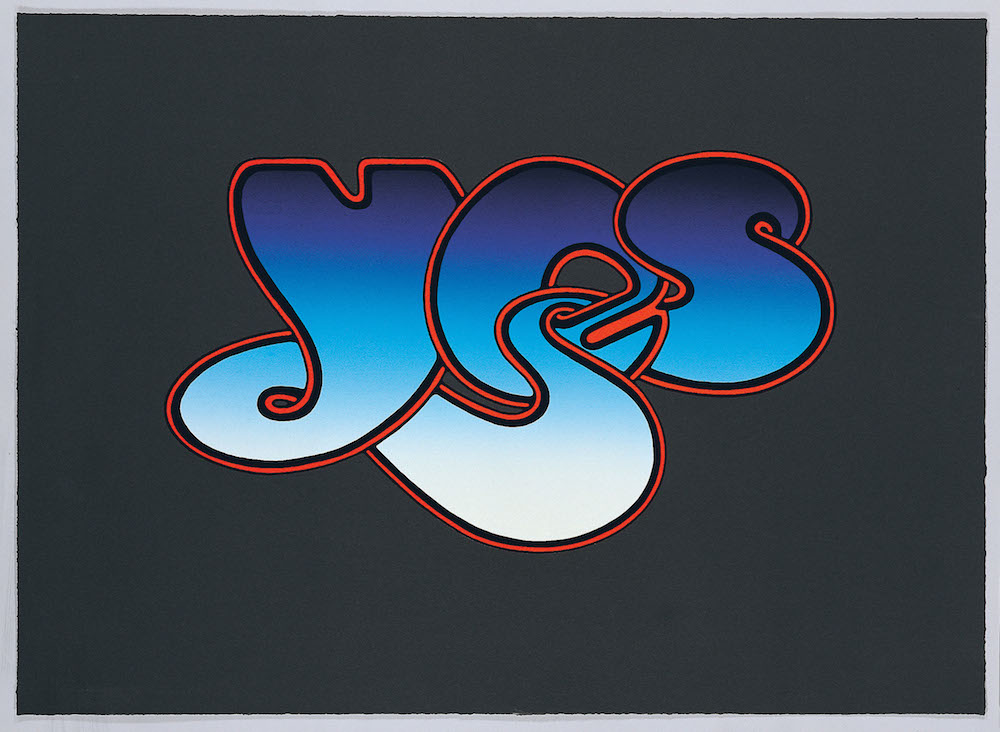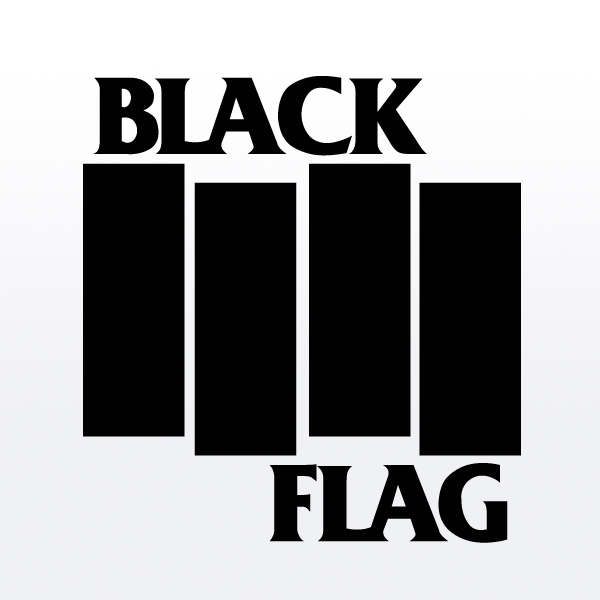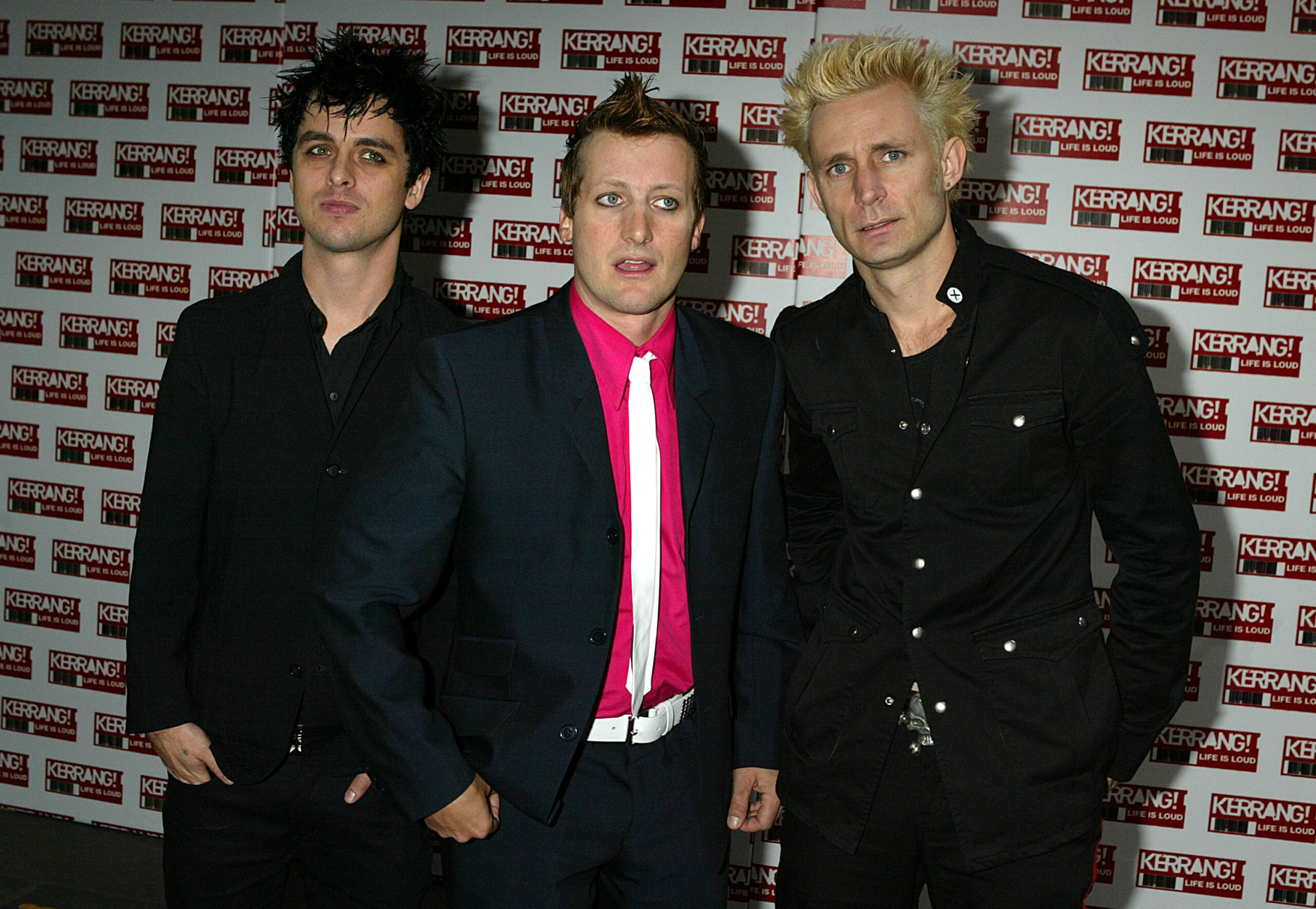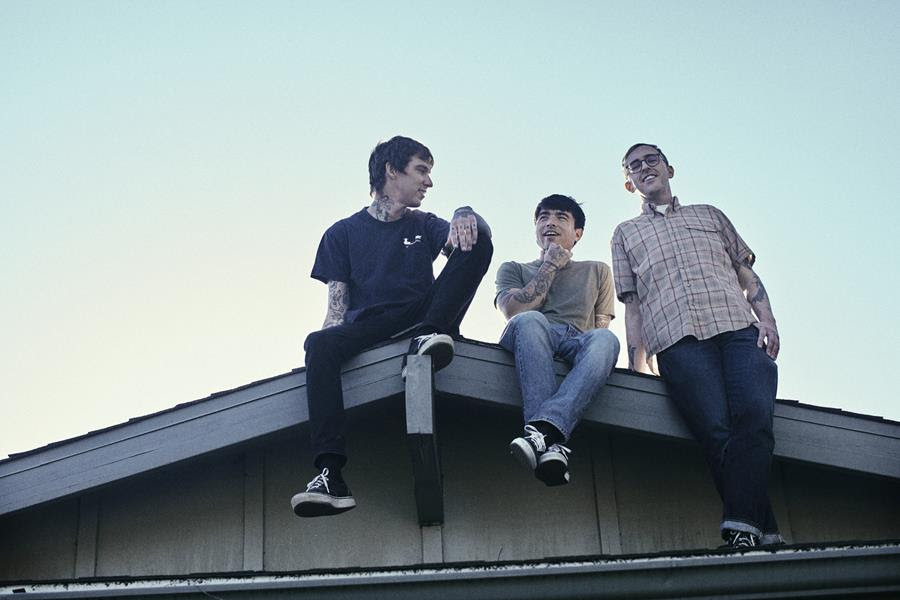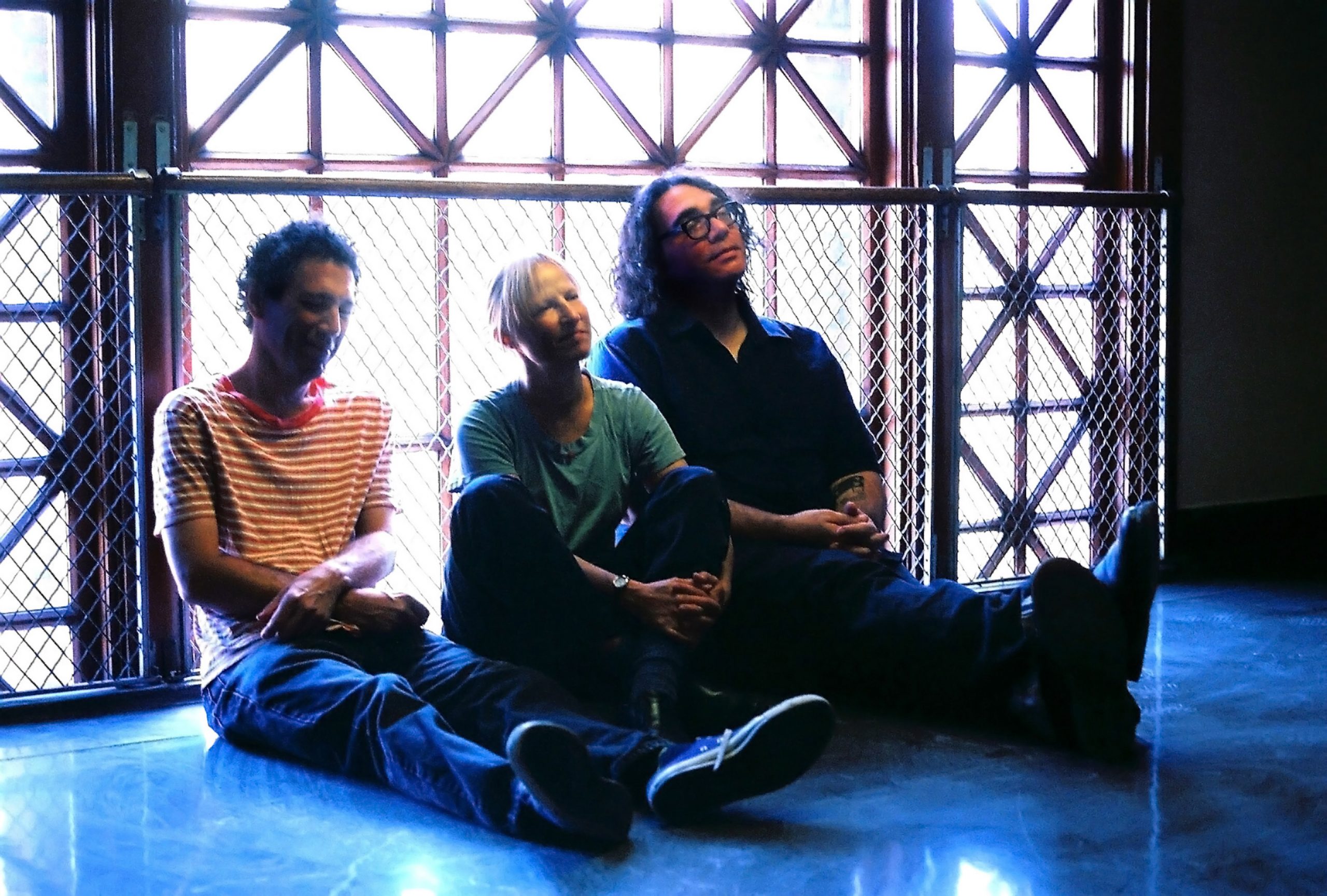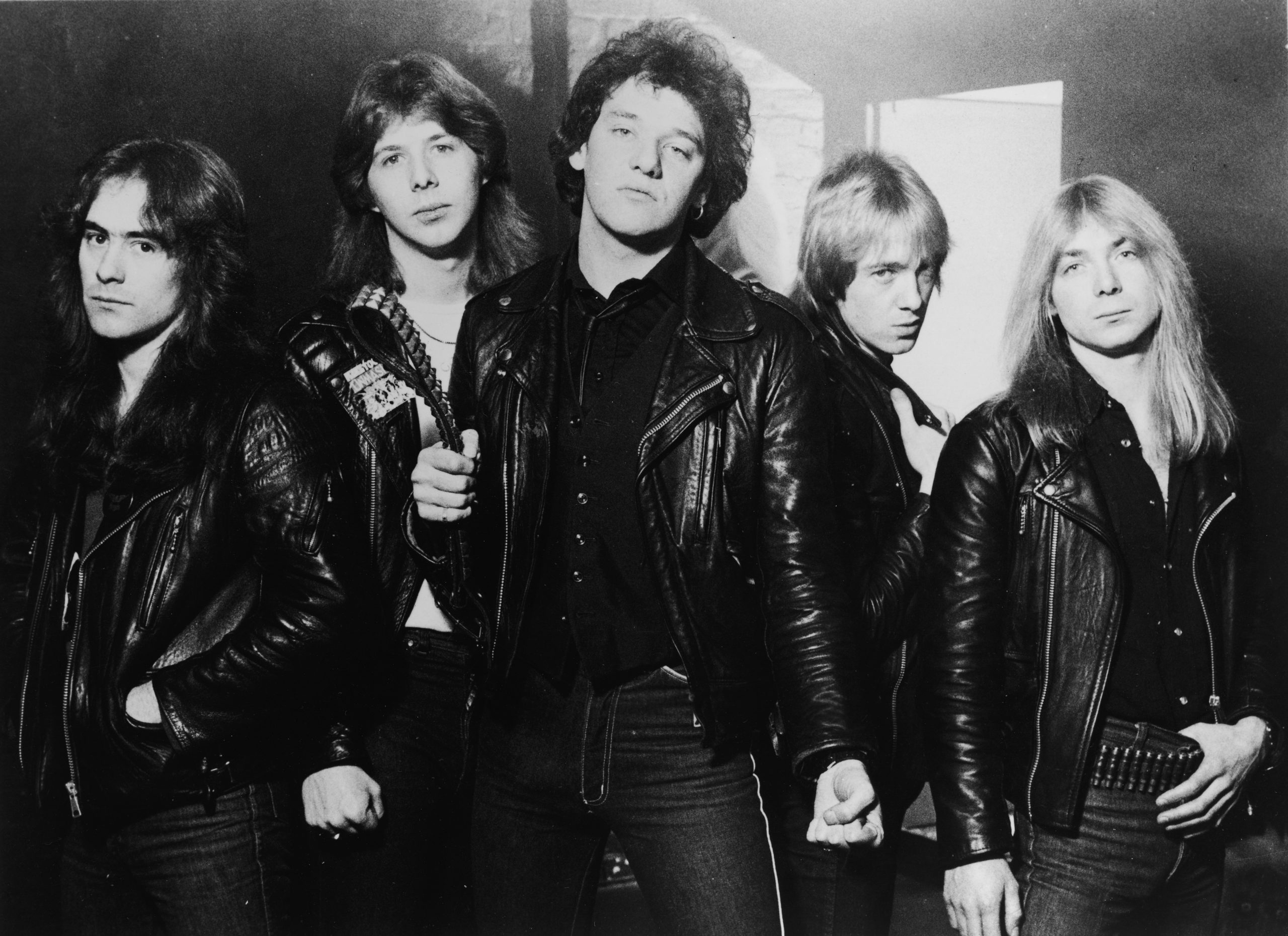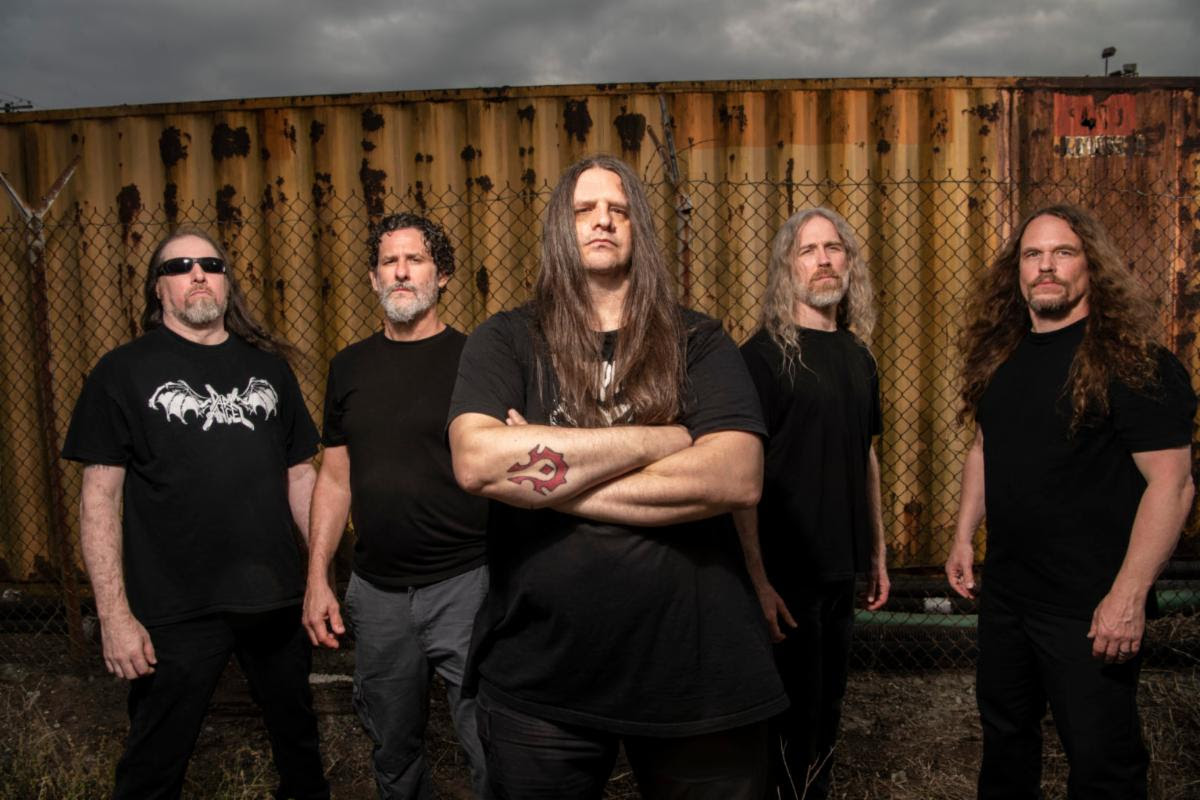Yes are one of the flagship acts of progressive rock. They're also one of rock's weirdest bands. Their best music is intense and aggressive, incorporating influences from jazz, folk, and country, but blending them with wild synthesizer explorations, crazed art-boogie guitar shredding, bass louder than most metal bands', crushingly complex drumming, and Jon Anderson's unique, highly recognizable upper-register vocals. At their mid-'70s peak, they were imaginative and self-indulgent enough to release a double album with one song on each side; a decade later, they partnered with producer Trevor Horn (Art Of Noise, Frankie Goes To Hollywood) and created one of the biggest hit singles of the '80s. But they've had a staggering number of lineup fluctuations -- the only constant presence has been bassist Chris Squire -- to the point that their last two singers have been recruited from Yes cover bands. They're some of the most talented and technically skilled musicians in rock history, but it's a safe bet that the Rock And Roll Hall Of Fame will burn to the ground before they'll be inducted.
Yes were formed in the summer of 1968 by Chris Squire and Jon Anderson, who recruited guitarist Peter Banks, keyboardist Tony Kaye, and drummer Bill Bruford. They quickly made a name for themselves on the London club scene, and got a prime gig opening Cream's farewell concert at the Royal Albert Hall. Their first two albums were moderately successful, but they didn't really develop their own sound until their third, simply titled The Yes Album. That disc was also Tony Kaye's last work with the group; he was replaced by Rick Wakeman, and the band's classic era commenced.
For the next few years, Yes moved from strength to strength. Each album -- Fragile, Close To The Edge, Tales From Topographic Oceans, the live Yessongs -- was rapturously received, and they began selling out larger and larger venues. But Tales proved to be a stumble; critics and some fans rebelled against the idea of a four-song double LP. Indeed, the band became poster children for bloated '70s rock excess, with Wakeman a particular figure of fun for things like wearing a cape onstage and ordering takeout dinner delivered to his keyboard during other bandmembers' extended solos. Ultimately, he left the band after the Tales tour, though he'd be back -- and gone, and back again.
As the '70s wore on, Yes began to be a band in turmoil. The records got worse (Tormato in particular), and Anderson and Wakeman both quit in 1980, causing the remaining members to absorb new-wave duo the Buggles (Geoff Downes and Trevor Horn) for the Drama album. Then the band flat-out broke up ... until 1983, when they came back, with Anderson returned to the fold and Horn producing, and made 90125, their most commercially successful album to date. The first single, "Owner Of A Lonely Heart," went to #1, and the album sold more than six million copies.
Of course, it couldn't last. The '80s and '90s found the band shedding and regaining members, leaving their original label, Atlantic/Atco, for Arista, then a string of indies, and even seeing four of their key players forming the spinoff group Anderson Bruford Wakeman Howe.
These days, Yes are a legacy act. They've released three albums of new material in the 2000s, only one of them with Jon Anderson singing; he left the group for good in 2008, after years of health issues. Their last two singers, Benoît David and Jon Davison, have been former members of Yes cover bands. And while they continue to write and record new material, their concerts are still dominated by 40-year-old songs; indeed, in 2014, they performed a "Three Albums Tour," during which they played The Yes Album, Close To The Edge and Going For The One in their entirety, and followed that up with a tour showcasing Fragile and Close To The Edge, plus a "greatest hits"/new-material mini-set at the end. (Very sadly, just yesterday, Squire revealed that he has been diagnosed with Acute Erythroid Leukemia, and will be receiving treatment over the next few months. We wish him a speedy recovery.)
This roundup includes every Yes studio album, and the majority of their live releases, including the brand-new, mind-crushing box Progeny: Seven Shows From Seventy-Two, which (as its title implies) includes seven full concerts from the Close To The Edge tour on 14 CDs. I also included the debut by Anderson Bruford Wakeman Howe, because honestly it's got more of a claim to being a Yes album than some Yes albums do. I skipped the members' various solo releases, 'cause holy fuck, there are a lot of them, and there are already 33 titles in this roundup. So ... enjoy!
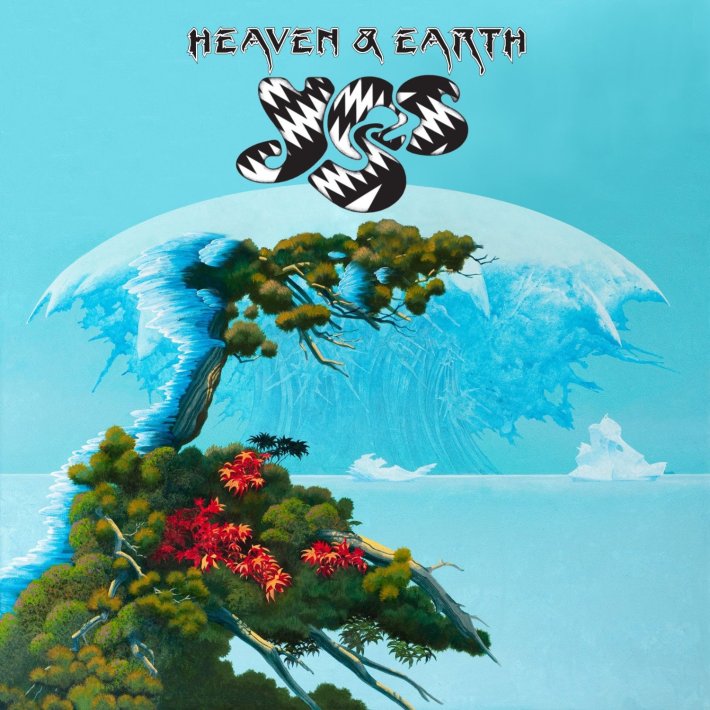
Yes' 2014 studio album found them working with their second new singer since Jon Anderson's departure following 2001's Magnification. This time, the not-Jon-Anderson was Jon Davison of Tennessee-based prog act Glass Hammer. (He was also, like his predecessor Benoît David, the former singer of a Yes tribute band.) Davison is actually worse than David, because where David sounded enough like Anderson that you could almost confuse the two of them (except that David enunciated more clearly, and didn't have Anderson's inhuman, piercing upper register), Davison has one of those ultra-clean, ultra-boring prog rock voices. He sounds a lot like Dream Theater's James LaBrie, honestly. And the songs -- many of which he co-wrote -- are similarly faceless and boring, sad to say. When they're not boring, they're actively lame, like "Step Beyond," which is built around this bouncing, up-and-down keyboard melody that sounds like something from a children's album, like it should have lyrics about drinking your milk or brushing your teeth. If the music had just a fraction of the edginess of Yes' best work, there might be something to recommend Heaven & Earth to diehards. But between the watered-down music and Jon Davison's almost intolerable vocals, this record is a total wash.
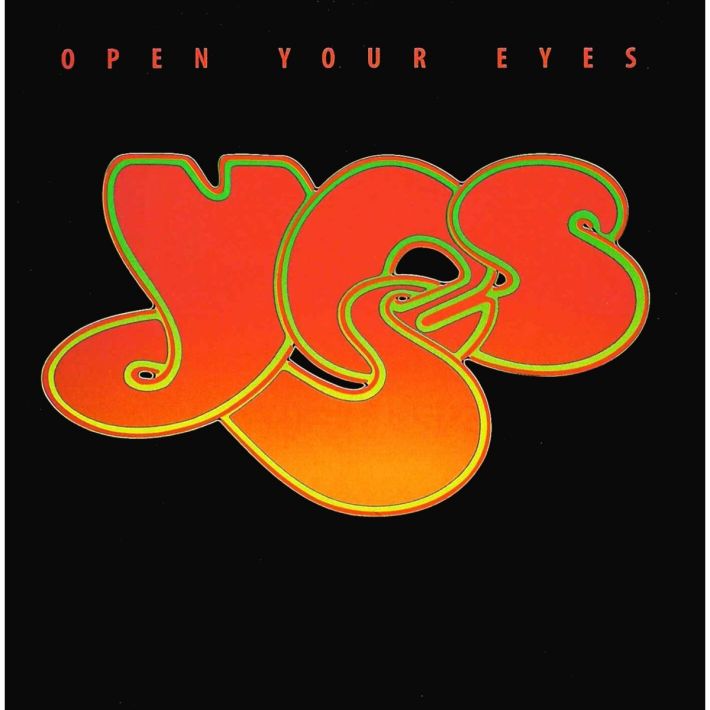
For whatever reason, Yes' veterans frequently allowed the band's newer members to take the creative reins in the '80s and '90s. Calling the results mixed is being generous. 90125 is bizarre and awesome, because Trevor Horn is a genius. Big Generator and Union are not, because Trevor Rabin is not Trevor Horn. (Talk, while also dominated by Rabin, is significantly better.) In perhaps the worst example of creative abdication of their career, the band's 1997 album, Open Your Eyes, was virtually handed over to new member Billy Sherwood, a multi-instrumentalist who'd previously worked with the group while Jon Anderson was busy with Anderson Bruford Wakeman Howe; he never actually became a member of Yes at that point, though he did work with Chris Squire and Alan White in the Chris Squire Experiment. Jon Anderson liked what he heard of that project's material, and the four of them tried to transform some of those songs into Yes material. (The Chris Squire Experiment changed its name to Conspiracy, and released its debut album -- which included versions of "Open Your Eyes" and "Man In The Moon" -- in 1999.)
Open Your Eyes sounds nothing like Yes, except for the presence of Jon Anderson's vocals. "Fortune Seller" combines a plodding '90s "funk-rock" groove with sub-'80s-Grateful Dead guitar noodling; "Man In The Moon" features a stabby keyboard line, punctuated by the cleanest distorted guitar you'll ever hear; with different lyrics, it could be the theme to a Pierce Brosnan-era James Bond movie. The best track on the record is "From The Balcony," which is an acoustic piece performed by Anderson and Steve Howe, and less than three minutes long. Everything else is slathered in the most dismally begging-for-airplay keyboards imaginable, and written at a child's level of musical sophistication. It's hard to even believe this is a Yes album.
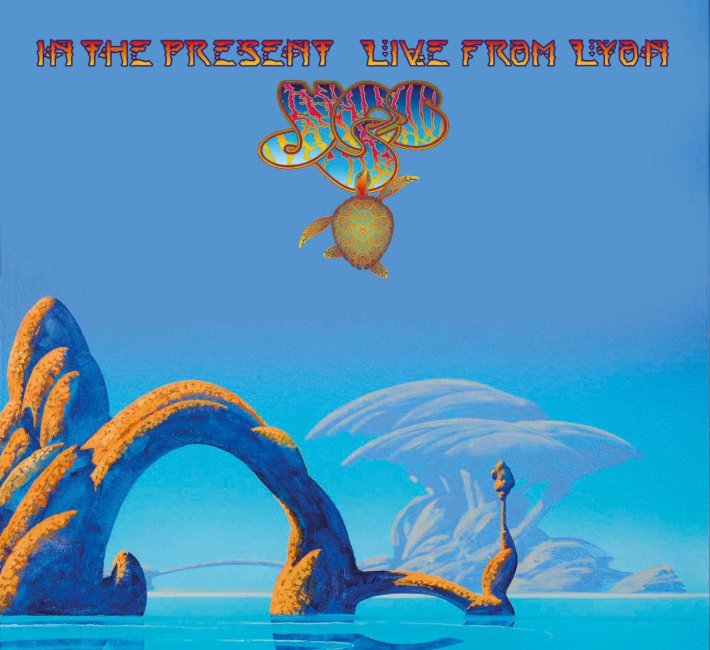
This is a live album with Benoît David on vocals. Though it was released in 2011 -- less than six months after Fly From Here, the only studio album with David, in fact -- it was recorded in 2009. What's that mean? It means there are no new songs on it, despite it being recorded during what the band called the "In The Present Tour." It's a greatest-hits-live album, performed with the singer from a Yes cover band, and Rick Wakeman's son Oliver in the keyboardist's chair. This redefines "inessential," unless you really, really want/need to hear "Astral Traveller" or "Machine Messiah" (the only songs not heard on basically every other Yes live album) performed with vocals just a little bit below Jon Anderson's range, and enunciated super-clearly, which gives the effect of making it seem like there's something wrong with the recording.

It took Yes 10 years to follow up Magnification, their final album with Jon Anderson singing. When they did, they'd brought back keyboardist Geoff Downes (who first appeared on 1980's Drama) and producer Trevor Horn (who'd manned the boards for 1983's 90125 and portions of 1987's Big Generator). And the singer, Benoît David? He was the former frontman for the Canadian tribute band Close To The Edge. He'd originally joined Yes in 2008, when Anderson suffered respiratory failure and couldn't tour. But while he was first called a "stand-in" in interviews, by the end of 2009 he was Yes' official lead singer.
Unfortunately, he was way too faceless -- perfect for a tribute band, not so good for a band with a focused identity created over the course of decades -- and Fly From Here is a highly forgettable album as a result. Though they try to capture the old prog-epic magic with the title track, which is a six-part, 28-minute suite, David's voice is bland and the lyrics are mostly tripe, and the music plods on and on with no interesting tempo changes, wild stunt solos, or anything else one might conceivably come to a Yes album expecting.
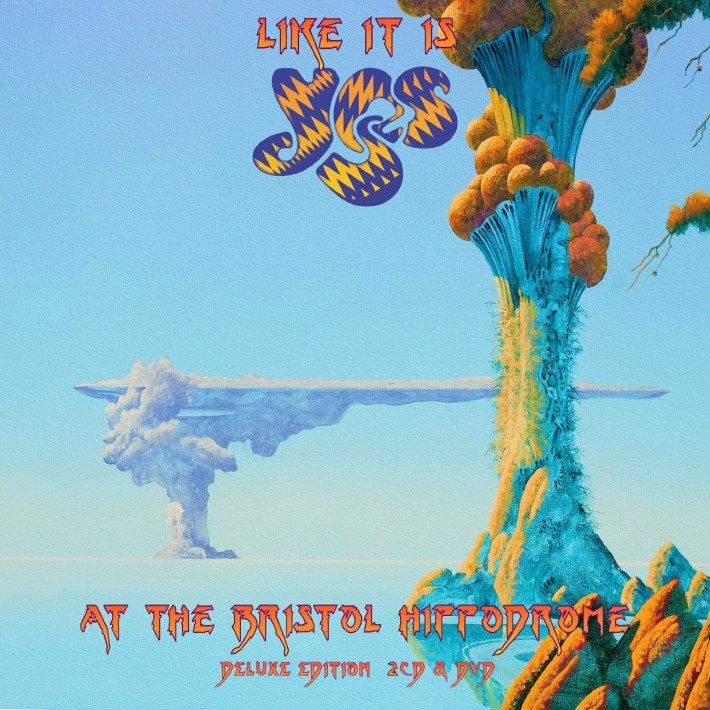
This live album was recorded in May 2014, and released in December 2014; it documents two-thirds of a concert from Yes' Three Albums Tour, on which they ("they" in this case being vocalist Jon Davison, guitarist Steve Howe, keyboardist Geoff Downes, bassist Chris Squire, and drummer Alan White) performed Going For The One, The Yes Album, and Close To The Edge in their entirety. The Close To The Edge performance is not included.
There's not much more to say about Like It Is. Jon Davison sounds more like Geddy Lee than he does Jon Anderson; Geoff Downes does a serviceable job of playing parts created by Rick Wakeman and Tony Kaye; and the other three do their jobs, though the songs feel a little slower and less energetic than their studio counterparts, probably because of the advanced age of the players.
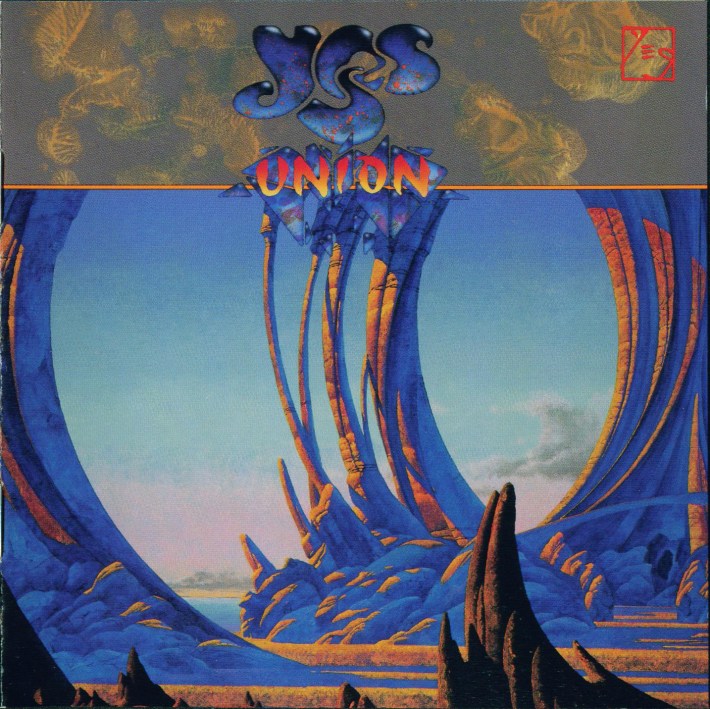
Union is a sprawling, uninspired album, overstuffed with both songs (there are 14) and musicians. It features not only all five members of Yes circa Big Generator (vocalist Jon Anderson, guitarist Trevor Rabin, keyboardist Tony Kaye, bassist Chris Squire, and drummer Alan White), but also drummer Bill Bruford, guitarist Steve Howe, and keyboardist Rick Wakeman, all of whom had joined Anderson to form Anderson Bruford Wakeman Howe in 1988. And that's not all; a total of 20 studio musicians (most of them keyboardists, though ABWH bassist Tony Levin is also present) help out on various tracks. But despite its title, Union isn't a collaborative effort so much as a gathering up of scraps, which are then compiled and disguised as an album. There are tracks here that were originally intended for the second ABWH album; a solo piece by Steve Howe (one of the best things on the record) tacked on at the last minute; a Bruford-Levin duo that's a studio document of a bit they used to do onstage; and several songs written by Trevor Rabin that were basically demos, but which made the final release with Anderson's vocals added.
The results are, unsurprisingly, mixed. "Lift Me Up," one of the aforementioned Rabin demos, was actually a pretty sizable hit, topping Billboard's Album Rock Tracks chart for six weeks. But it's a faceless chunk of early-'90s Big Rock, exactly the kind of highly polished corporate product that people who think grunge changed things insist grunge was created to change. It's also Union in a nutshell -- there's almost none of the wild, high-wire frenzy of Yes' glory years anywhere on this album. ("Miracle Of Life" is a nice try, but it's still too plodding and radio-friendly by half.) The five core members weren't even making music together at this point; they were all just agreeing to use the Yes name because nobody would buy the record otherwise.
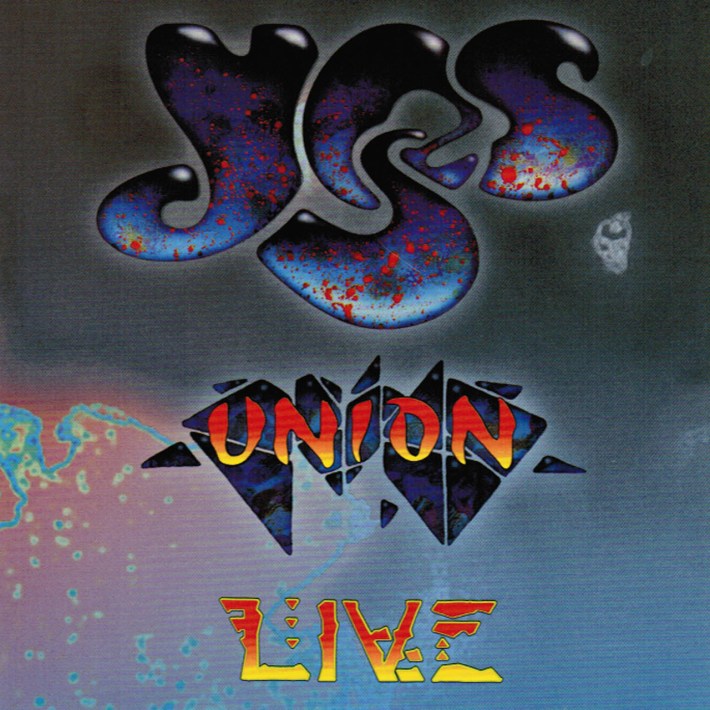
Union Live was released in 2011, but recorded 20 years earlier, on the 1991 tour that featured Yes' largest lineup: Jon Anderson on vocals, Steve Howe and Trevor Rabin on guitars, Tony Kaye and Rick Wakeman on keyboards, Chris Squire on bass, and Alan White and Bill Bruford on drums. Interestingly, the album Union was more of a patchwork than a true collaboration between all these members; various tracks were put together by subsets of the ensemble, a fucking ton of studio musicians were brought in to pad out the arrangements, and the result was a tedious exercise in late-'80s/early-'90s Big Radio Rock without a single truly great, memorable track among the 14 that made the album. So it's kind of a good thing that there's only one song from Union on Union Live. Unfortunately, it's the fake reggae song, "Saving My Heart For You."
The best thing about Union Live is hearing the band figure out stuff for all these guys to do. Having two guitars and two drummers turns some of the songs into glossy '80s-metal versions of themselves; there's a solo on "Yours Is No Disgrace" that's one of the most hilariously shredtastic things ever, total Yngwie Malmsteen madness. And when Bruford and White are both jackhammering away (White on acoustic drums, Bruford on electric), it's pretty thunderous. But ultimately, the '90s were not a good time for Yes, and this album is probably safe to ignore.
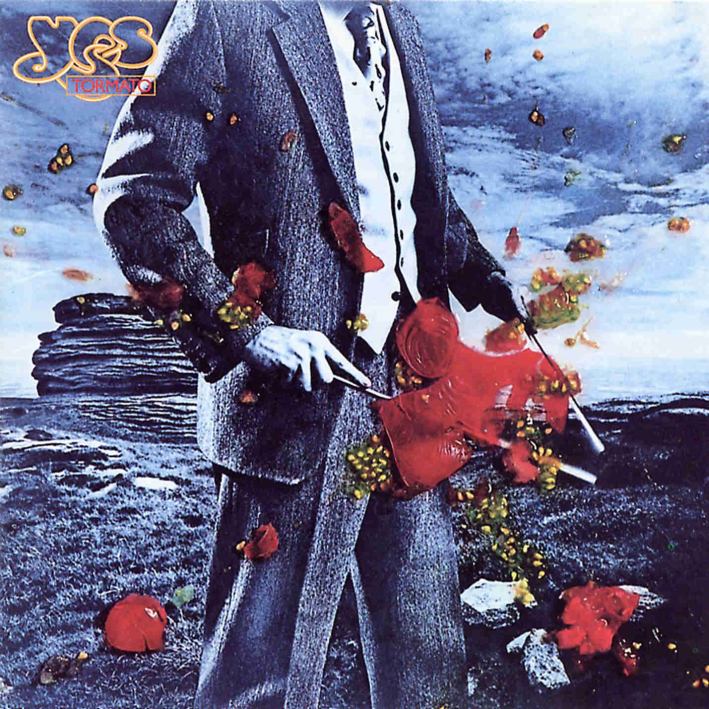
While it featured the same lineup as Going For The One, Tormato was still an album made by a band in conflict. Between its release and the sessions for the follow-up, 1980's Drama, both Jon Anderson and Rick Wakeman (again) would leave. On the positive side, most of the songs here are pretty short; the average running time is probably around five minutes. Unfortunately, good ideas are in extremely short supply. A riff or two may hit home, and "Arriving UFO" is goofy but OK. But Rick Wakeman's keyboards are more annoying than awesome; the overdubbed applause on "Release, Release" is a cynical joke (there's nothing to cheer for about this song); the big single "Don't Kill The Whale" strives for disco-pop and flops on its face; and Anderson actually lets his son appear on "Circus Of Heaven."
This album was originally going to be called Yes Tor, named for a rock formation in England. But when Rick Wakeman saw the photos intended for the album cover, he hated them so much, he threw a tomato, and voila! Tormato. It's amazing nobody had a similar response when listening back to the tapes before it was released. This is easily the worst album by classic-era Yes, and best left to diehards only.
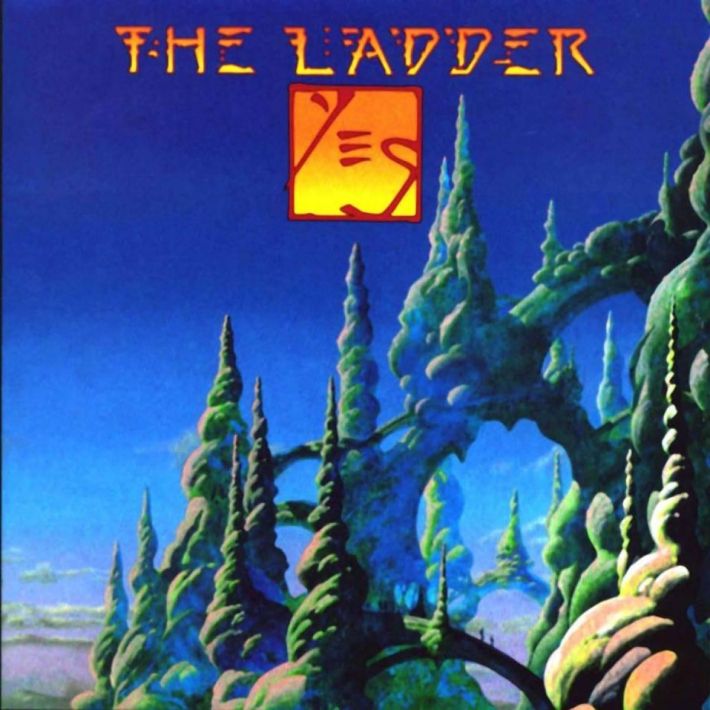
The Ladder was recorded relatively quickly, a follow-up to/recovery from the disappointing Open Your Eyes. In addition to vocalist Jon Anderson, guitarist Steve Howe, bassist Chris Squire, and drummer Alan White, the band included second guitarist Billy Sherwood (who had also played keyboards on Open Your Eyes) and keyboardist Igor Khoroshev, plus a five-piece horn section on "Lightning Strikes." This was the last album famous producer Bruce Fairbairn worked on; he died before it could be completed, and it's dedicated to him.
Musically, it's well-played, but there are a lot of dubious ideas at work. The opening track, "Homeworld (The Ladder)" provides plenty of space for the various instrumentalists during its near 10-minute running time, but it's the acoustic coda -- just guitar, piano, and Anderson -- that makes the strongest impact. "It Will Be A Good Day (The River)" sounds more like a Toto song, while "Lightning Strikes" is artificially uptempo, with synth patches and a 4/4 drum machine beat so primitive, they sound like they could have been lifted from a soca cassette picked up by a band member in a Vancouver market during the sessions. Indeed, the thick carpet of perky synth textures, jangly acoustic/clean guitars, and bouncy rhythms on this album suggest a lot of time spent listening to African and island pop. And while that's admirable, it doesn't exactly help Yes play to their strengths. Oh, and did I mention there's a reggae song? Yeah, "The Messenger" is one of those things it's hard to un-hear -- and worse than that, it's a tribute to Bob Marley.
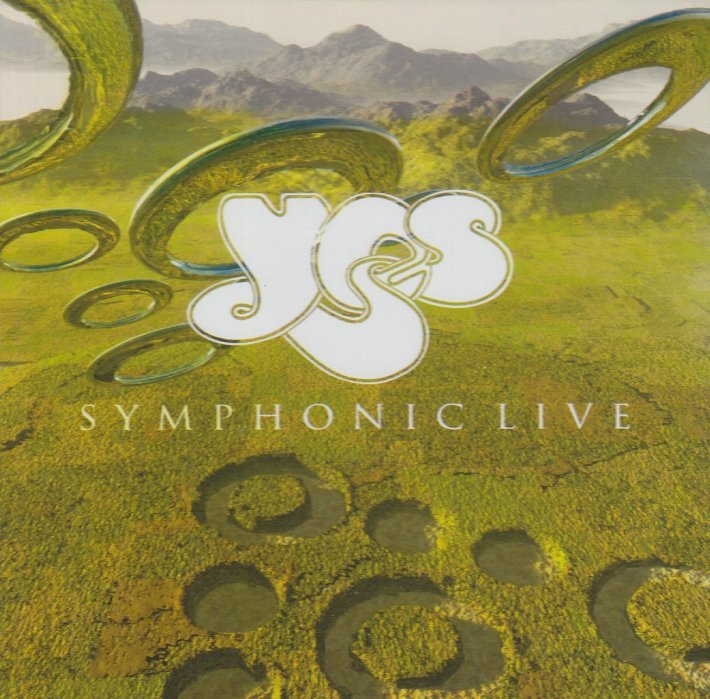
This set comes from 2001, in the wake of Magnification, the studio album Yes recorded with an orchestra. But while that record found them using strings to replace an absent Rick Wakeman (indeed, there was no full-time keyboardist on the album), this is a typical Yes concert, featuring several Magnification tracks as well as the usual array of classics from the catalog, with an orchestra surging behind them. And honestly, it doesn't work as well as one might hope.
The members of the European Festival Orchestra (how's that for a generic name?) are talented enough; the problem is, classical rhythm and rock rhythm (never mind jazz rhythm) are too different to truly meet in the middle, and this album flops in the same ways most rock-band-with-strings albums flop. They add some really nice intros to "Roundabout" and other songs, but when the songs are underway, they mostly contribute surges in the background, like a movie soundtrack, and Yes are forced to slow down slightly, but noticeably, in order to make sure the orchestra can keep up, and to make room for them in the already tight/stuffed arrangements. It winds up making the band sound tired, like they're not playing at the peak of their powers. (Which they probably weren't in 2001, though they've gotten worse since.) It was a good idea in theory, but the execution is kind of a letdown.
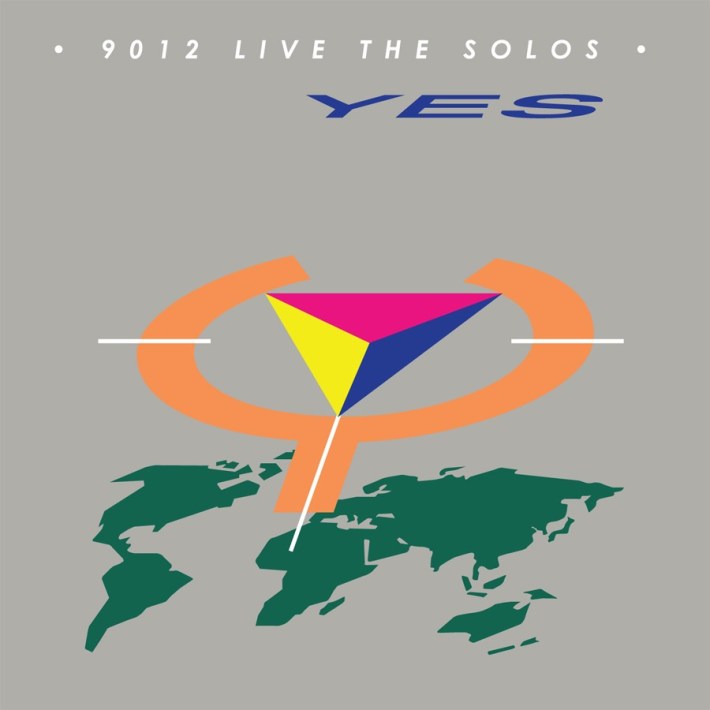
This weird little nugget is exactly what its title implies: A collection of solos (plus performances of the 90125 tracks "Hold On" and "Changes") recorded on tour in 1984. Tony Kaye gets all Phantom Of The Opera via an organ patch, Trevor Rabin offers some fake flamenco with gooey synth in the background, and Jon Anderson sings the "Soon" section of "The Gates Of Delirium," from Relayer. The version of "Changes" is more sprawling than the studio take, but the real highlight, for sheer WTF-ness, has to be Chris Squire's massively fuzzed-out, distorted, echo-slathered, 1/8-speed solo bass version of "Amazing Grace," which basically prefigures Earth and Sunn O))). That leads into the album's closer, "Whitefish," a hard-driving bass-drums duet (with occasional interjections from Anderson) that crams "The Fish (Schindleria Praematurus)," "Tempus Fugit," and "Sound Chaser" into an apocalyptic eight-minute medley. Is this for anyone but the most diehard fans? No. Will those diehard fans find it diverting? Sure, but not much more than that.
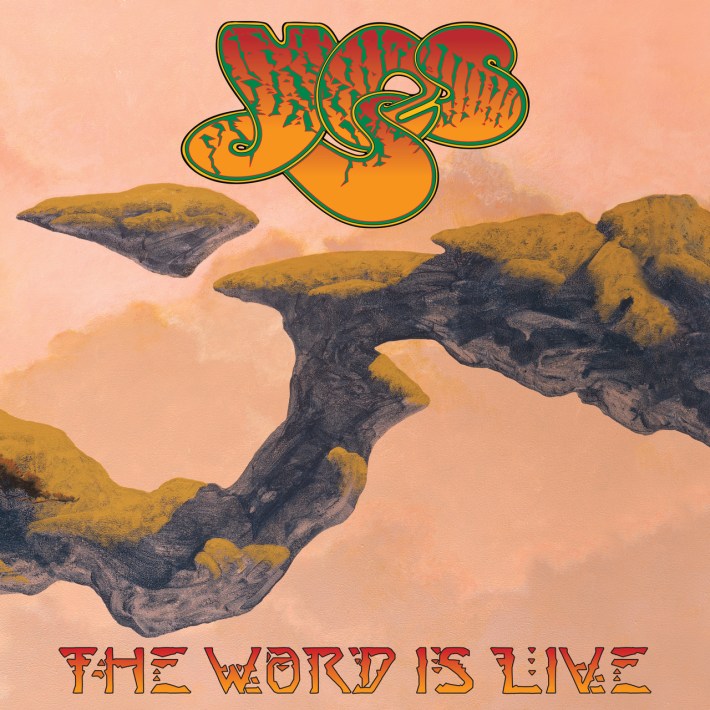
In 2002, Yes put out a box set, In A Word: Yes, gathering album tracks and rare outtakes from 1969-2001. This three-disc set was released three years later as a companion piece. The first disc includes recordings from 1970 and 1971; the second covers 1975-79; and the third begins with more from 1978-80, before jumping to 1988. In this way, it avoids major overlap with Yessongs or (weirdly) 9012Live: The Solos (though, of course, there are versions of some of the early '70s material here, and Disc Three ends with a live "Owner Of A Lonely Heart").
There are some really interesting performances on the set, particularly from the early years, like a nearly 17-minute 1971 version of "America," and an 11-minute cover of the Young Rascals' "It's Love," a song Yes never recorded in the studio. Two other songs, "Go Through This" and "We Can Fly From Here," were recorded on the tour supporting Drama, though they didn't appear on that album. There's also an interesting 26-minute medley of "Time And A Word," "Long Distance Runaround," Chris Squire's bass solo "The Fish," and "Perpetual Change" from 1979. Overall, though, it's a little too patchwork, containing as it does three or four songs each from 10 different concerts spread over 18 years.
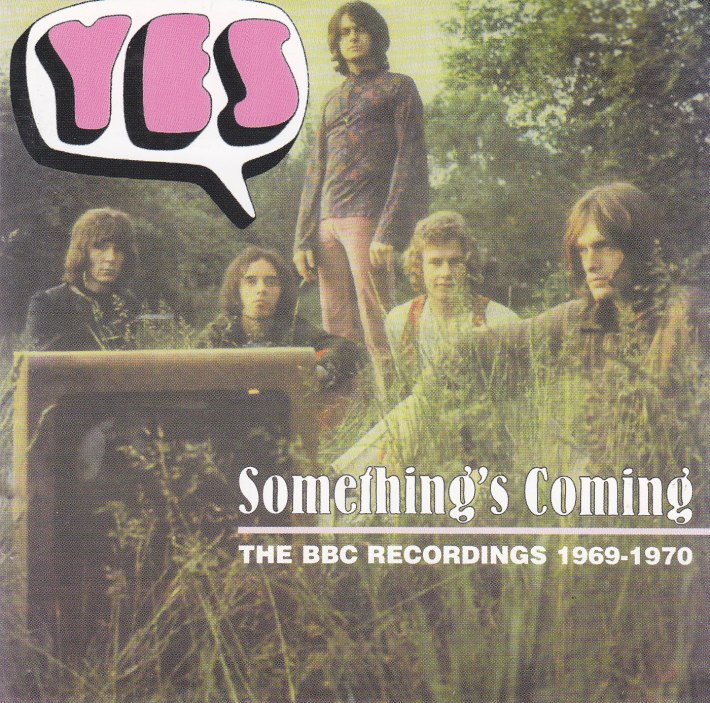
There's something to be said for state-run broadcast monopolies: They did great work in the arena of cultural documentation at a crucial time in the 20th century. Think of all the amazing avant-garde jazz performances preserved by state-run radio and television all across Europe in the 1960s. Similarly, the BBC recorded incredible live-in-studio sets by some of the most important rock bands of the '60s, '70s and '80s, and still licenses them for sets like this one.
Yes appeared on the BBC six times in their first two years as a band; the first set here comes from January 1969, the last from March 1970. This is the only live disc to feature the band's original lineup of Jon Anderson, guitarist Peter Banks, keyboardist Tony Kaye, bassist Chris Squire, and drummer Bill Bruford. Like the band's self-titled debut album and 1970's Time And A Word, the music here is much harder, jazzier and noisier than it would become later. The versions of "Something's Coming" and "No Opportunity Necessary, No Experience Needed" are breathless sprints, and Squire's bass in particular is practically noise-rock.
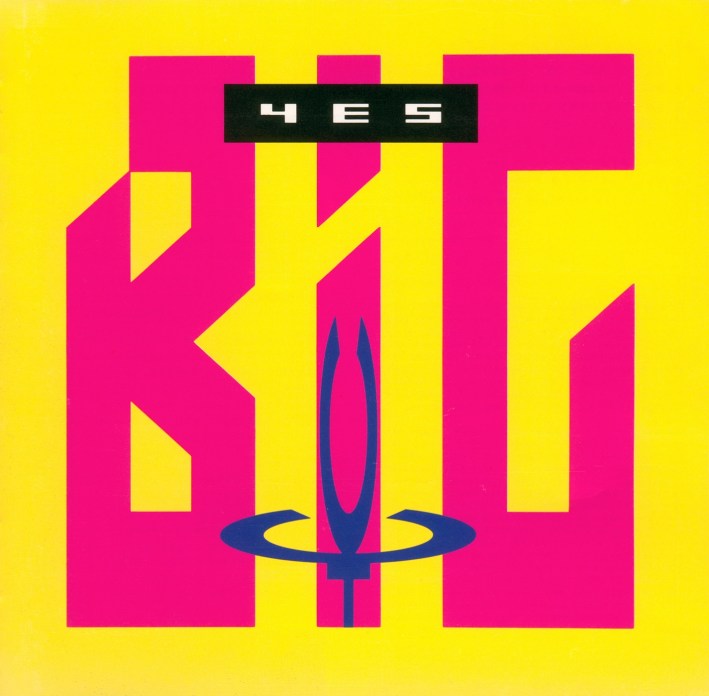
Although there were no membership changes between 90125 -- Yes' biggest hit; it went triple platinum -- and Big Generator, it still took them four years to make the follow-up, primarily due to tensions between producer Trevor Horn, who left the sessions after a few months, and keyboardist Tony Kaye. Ultimately, guitarist Trevor Rabin took over, and the result is a glossy, thoroughly '80s hard-rock album, with some weird touches at the margins.
One of those weird touches comes right at the beginning: "Rhythm Of Love," the second single, starts with ambient keyboard washes and wordless, Beach Boys-esque vocal harmonies. It doesn't stay that interesting, though; the song itself is a stomping radio rock track that could have been written and recorded by any '60s or '70s artist still grubbing for a hit at the end of the '80s. It could be a Starship song.
The title track offers a few diverting noises, too, like the scat singing at the beginning and a guitar solo that sounds like an alternate version of the one from "Owner Of A Lonely Heart." And "I'm Running," which at 7:38 is the longest track here, has enough shifts in mood to recall what Yes once were. But overall, this album is the sound of a band giving up and just doing whatever they think will get them another hit. Three of the track titles have "love" in them ("Rhythm Of Love," "Almost Like Love," "Love Will Find A Way") and are so achingly generic, they could have appeared on any album, by anyone. No surprise, then, that after Big Generator's release, Jon Anderson wandered off again, this time to form Anderson Bruford Wakeman Howe.
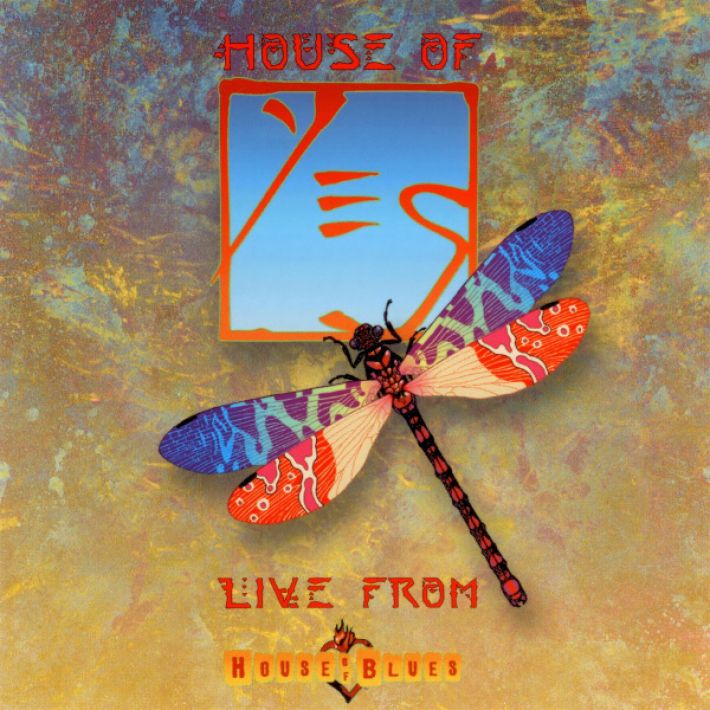
It's easy to argue that Yes have released way too many live albums in the 1990s and 2000s. It's easy because they have. Like Rush, they've become addicted to the form, releasing a multi-disc set after virtually every tour. Unfortunately, this means that the genuinely good ones are overwhelmed by the inessential or unimpressive ones. Well, House Of Yes isn't essential, but it is a surprisingly potent performance by the six-piece lineup that made 1999's The Ladder: Jon Anderson on vocals, Steve Howe on lead guitar, Billy Sherwood on rhythm guitar, Igor Khoroshev on keyboards, Chris Squire on bass, and Alan White on drums.
The band plays five tracks from The Ladder over the course of the set -- "Homeworld (The Ladder)," "Lightning Strikes," "The Messenger," "It Will Be A Good Day (The River)," and "Face To Face." That's too many, but it's both forgivable and understandable. They also perform "Cinema" and "Owner Of A Lonely Heart" from 90125, and the expected '70s highlights: "Yours Is No Disgrace," "Perpetual Change," "And You And I," "Awaken," "I've Seen All Good People," and "Roundabout," as well as one-minute excerpts of "Time And A Word" and "Ritual (Nous Sommes Du Soleil)."
What are the performances like, you ask? Generally solid, and at times even more adventurous than in the group's heyday. There are some impressively weird new solos stuffed into the very old songs, and while White seems to have slowed down a bit, and pulled the band back from the brink with him, this gives the classic material a bit more weight, almost as if they were a prog-metal band covering Yes. That, coupled with the raw intensity of Anderson's delivery (there's definitely less studio polishing here than there was on the two half-live/half-studio Keys To Ascension discs), makes this a latter-day Yes live album well worth hearing.
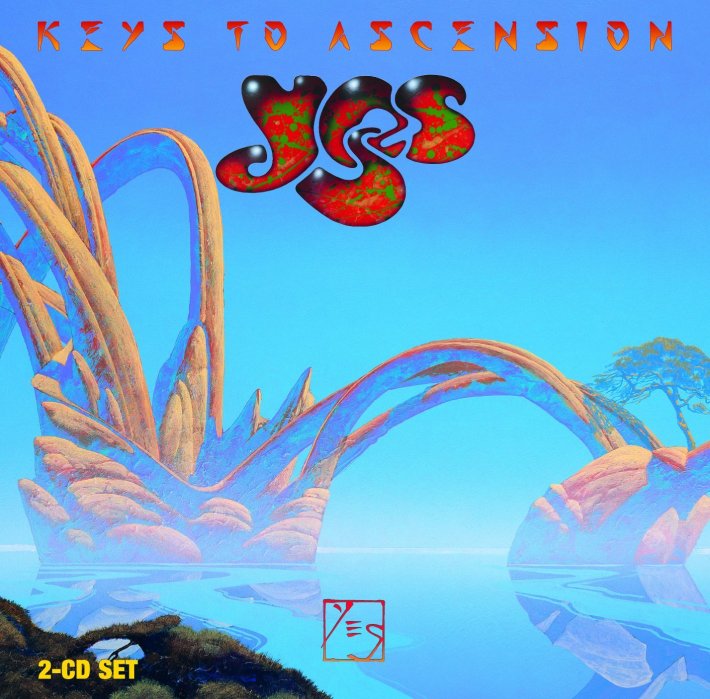
Keys To Ascension is mostly a live album, which features the band's final 1970s lineup (Jon Anderson, Steve Howe, Rick Wakeman, Chris Squire, and Alan White) performing in a small theater setting. The set list is mostly big hits -- "Siberian Khatru," "Roundabout," "Starship Trooper" -- plus "The Revealing Science Of God (Dance Of The Dawn)" from Tales From Topographic Oceans, "Awaken" from Going For The One, their epic reimagining of Simon & Garfunkel's "America," and one surprise: a version of "Onward" from 1978's Tormato, with a newly composed intro by Steve Howe. All this stuff is fine; the band sounds good, the performances are energetic. (A lot of the vocals were reportedly either retouched or wholly redone in the studio, FYI.)
The last two tracks, though, are all-new studio material, and thus the real reason this set is worth a listen. "Be The One" is the band in hard-rock mode, reminiscent of Going For The One; it may not have needed to be nearly 10 minutes long, but Howe and Wakeman both deliver high-energy performances, and it's got a lot of vitality. The second studio track, "That, That Is," is even more epic at over 19 minutes, divided into seven movements. It begins with gently picked acoustic guitar, before the drums and a mantra-like chanted vocal begin to slowly rise at around the three-minute mark. As it gets rocking, it also gets a little weird -- do we really want to hear Jon Anderson singing about crack-smoking single mothers in the ghetto? But the song continues to grow and expand, careening solos and densely stacked vocal harmonies tumbling out like waves, and ultimately it's as exciting as anything in their catalog since the late '70s.
The second Keys To Ascension album (both volumes were ultimately combined into a box) is more evenly balanced between studio and live material than its predecessor. This time, we get a full disc of each; live versions of "I've Seen All Good People," "Going For The One," "Time And A Word," "Close To The Edge," "Turn Of The Century," and "And You And I," and five new studio songs, the first of which, "Mind Drive," is almost 19 minutes long. The shorter ones are actually more enjoyable, though. "Foot Prints" opens with a cappella vocals, but the track itself is a strutting, almost funk-AOR prog mini-epic (nine minutes), with the radio-friendliness of their '80s material but more snap and energy. "Bring Me To The Power" is a more deliberately paced song on which Howe's guitars and Wakeman's keyboard sounds almost recall Relayer's quieter moments at times. "Children Of Light" is a ballad featuring a lot of ornate and quite lovely piano, while "Sign Language" is an instrumental showcase for Howe's liquid, bluesy guitar.
As '90s Yes goes, the studio tracks on both volumes of Keys To Ascension are pretty good. The live material is thoroughly inessential, though.
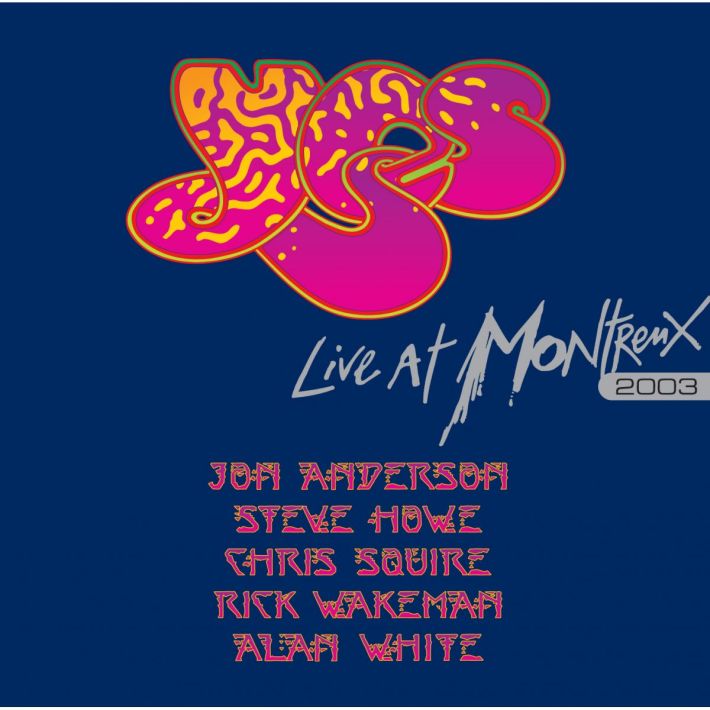
Like its title says, this album was recorded at the Montreux Jazz Festival in 2003. But while it's not a return to the more jazz-rock sound of their first two albums; it's more than just a set by the classic line up (Anderson, Howe, Wakeman, Squire, and White) performing the expected back catalog, with a few surprises. Amid the versions of "Siberian Khatru," "Roundabout," etc., we get a revival of "Don't Kill The Whale," a very solid version of the title track from 2001's Magnification (minus the orchestra), a nearly 20-minute journey through "Awaken" from Going For The One, and more. Chris Squire's bass feature, "The Fish," is nearly nine minutes long, and impressive as hell in a somewhat fusion-y way. Indeed, they do seem to have taken their surroundings into account and tweaked the arrangements of the songs to be just slightly more jazz-festival-friendly. I mean, don't get me wrong, they haven't hired a saxophonist or anything, but the instrumental portions feel just slightly more relaxed and indulgent, rather than high-intensity and bent on blasting the listener into submission with technique alone. Rick Wakeman's keyboards are more twinkly and lush, and Alan White seems to have attached a lot more chimes to his drum kit, particularly on "Awaken." Jon Anderson is practically crooning on the soft middle section of "Heart Of The Sunrise," as Wakeman plays cocktail-ish piano behind him.
Like most of the flood of Yes live albums released in the last 30 years, this isn't a truly necessary document. But it demonstrates that they're not just human jukeboxes, that they do tweak their material at times, so if you're already disappearing down the rabbit hole, it's worth at least one Spotify stream.
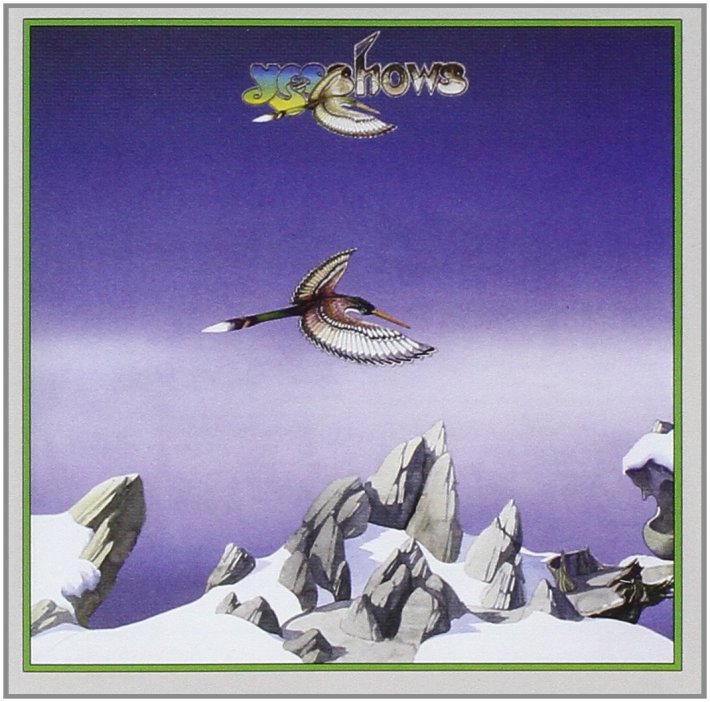
Yes' second live album was released in 1980, post-Drama, but documented the tours of 1976-78. Like its predecessor Yessongs, it opens with a recording of Igor Stravinsky's Firebird Suite, after which the band launches into "Parallels," one of the best tracks on 1977's Going For The One. It's a heavy, stomping version, too, with Chris Squire and Steve Howe tearing shit up like proto-metal warriors, and it sets the tone for what's actually a really good live collection, unfortunately overshadowed by its more ostentatiously epic predecessor. The track listing offers quite a few surprises; while they play three tracks from Going ("Parallels," the title cut, and "Wonderous Stories") and "Don't Kill The Whale" from Tormato, they also bust out "Time And A Word," from their 1970 second album.
And then there are the epics: This album features a version of "Gates Of Delirium," from 1974's Relayer, that's simply astonishing, and "Ritual/Nous Sommes Du Soleil," originally the fourth side of Tales From Topographic Oceans, is actually split between Sides Three and Four here, swelling to nearly 29 minutes (seven minutes longer than the studio version) in the process. "Gates" is softer and more listener-friendly than the studio version, which was so sonically hot and harsh it was almost avant-metal, with a drum sound like a steel toecap slamming you in the back of the neck. The drums here are a more rounded thump; the vocals are sung in a less urgent, panicky manner; Moraz's keyboards offer fewer of the sci-fi zaps heard on the album, going for Isaac Hayes-ish string patches and fusion/soul organ instead; and the junk-percussion interlude in the middle is impossible to replicate live, so they don't try. Howe and Squire are still set to destroy, of course, but overall this live "Gates" is less delirious, and more rockin'.
It's also interesting to hear Moraz's contributions to "Ritual (Nous Sommes Du Soleil)"; he gets plenty of solo space, but doesn't do all that much to warp the studio version. The second half of the piece, though, really amps up the energy, particularly from Howe; his guitar is absolutely searing. Even more impressive, much of the extra running time is devoted to a drum solo, which would suck if it wasn't accompanied by insane, almost Eye Yamantaka-like vocalizations and high-tension keyboards from Moraz. It builds up a huge wave of energy, which then crashes down into the soft, quiet final section. After that, the band runs through an acoustic-guitar-driven version of "Wonderous Stories," and that's it.
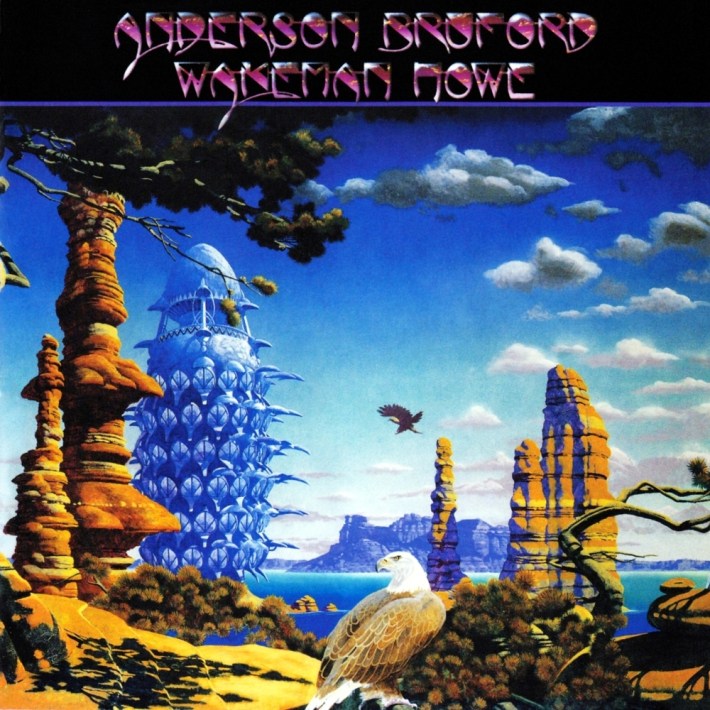
Following the release of Yes' Big Generator in 1987, and the conclusion of the band's contract with Atco, vocalist Jon Anderson left, dissatisfied with the direction Trevor Rabin had taken the group. Reuniting with guitarist Steve Howe, keyboardist Rick Wakeman, and drummer Bill Bruford, he formed this group, which also featured bassist Tony Levin (who'd worked with Bruford in King Crimson). They only made one album, but in so doing, they proved that it was entirely possible to make progressive rock in the late '80s without pandering to '70s nostalgia or cavorting around in a humiliating attempt to attract pop fans.
The songs on ABWH are catchy, but not poppy. Anderson and Howe did most of the writing, while Wakeman contributed two songs, "Fist Of Fire" and "The Meeting." The 10-minute "Brother Of Mine" is effectively a three-part suite, and two other pieces, "Quartet" and "Order Of The Universe," run through four sections each. Sure, the guitar, keyboard and drum sounds may lock them in time, but the music overall bears a much more Yes-ish stamp than the stuff on Big Generator. And while this isn't an official Yes album, it's definitely something fans should hear.
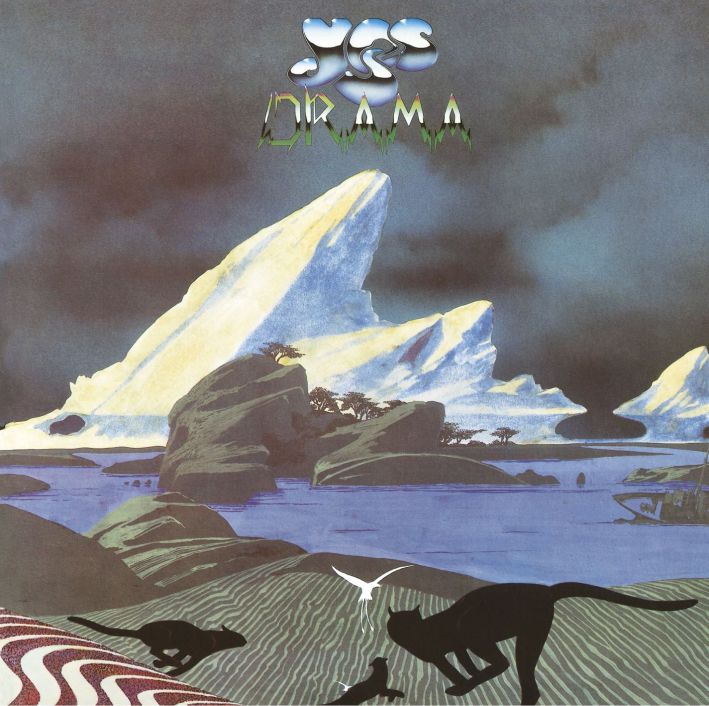
Is Drama even a Yes album, really? Jon Anderson and Rick Wakeman both left after the creative and commercial letdown of 1978's Tormato, but Chris Squire, Steve Howe and Alan White wanted to keep on rolling. So they brought in keyboardist Geoff Downes and vocalist Trevor Horn of new-wave one-hit wonders the Buggles, who happened to share management with Yes, and voila! Drama.
Admittedly, the album starts off strong -- the 10-minute "Machine Messiah" is close to metal, with Howe shredding up a storm and Downes' keyboards adding ominous weight as Horn sings in the highest voice he can manage. He's not Anderson (and the Anderson-Howe-Squire harmonies are absent), but he's close. Squire's bass is buried deeper in the mix than usual; occasional eruptions aside, it's more like a low-end pulse than the usual co-lead instrument. (Don't worry, it reclaims pride of place on most of the other songs.) Even when "Machine Messiah" gets quiet, it does so in a really loud way, stripping down to acoustic guitar and keyboards more reminiscent of Pink Floyd circa Wish You Were Here than Yes' own prior work. This is a big, epic track, a perfect introduction to a new version of Yes. If the rest of the album were as strong, there would be no problem.
Unfortunately, the rest of Drama is less, well, dramatic. "Machine Messiah" is followed by "Man In A White Car," an 80-second bit of nothing that sounds like something Peter Gabriel would have cut from one of his first solo albums. Then we get into the meat of the record, and things get weirdly patchwork and disjointed. Three tracks -- "Does It Really Happen?," "Run Through The Light," and "Tempus Fugit" -- were written before Horn and Downes joined, and two of the three have a similar vibe to Going For the One/Tormato-era Yes, filtered through of-the-moment production (the drum sound on this album is monstrously huge, comparable to that on Genesis' Duke and Abacab). "Tempus Fugit," though, occasionally gives the impression that Steve Howe, in particular, had been listening to the Police a lot. Meanwhile, "Into The Lens" is basically a Buggles song blown out to eight minutes with repetition and excessive, wanky solos. (The single edit, which cuts the song by more than half, is a little better.) Overall, Drama is a weird, lurching record with some very good moments but no classic tracks. It's no wonder the band broke up following its release. What was really surprising was their reunion (sort of) and near-total sonic reinvention on 1983's 90125, which Horn produced.
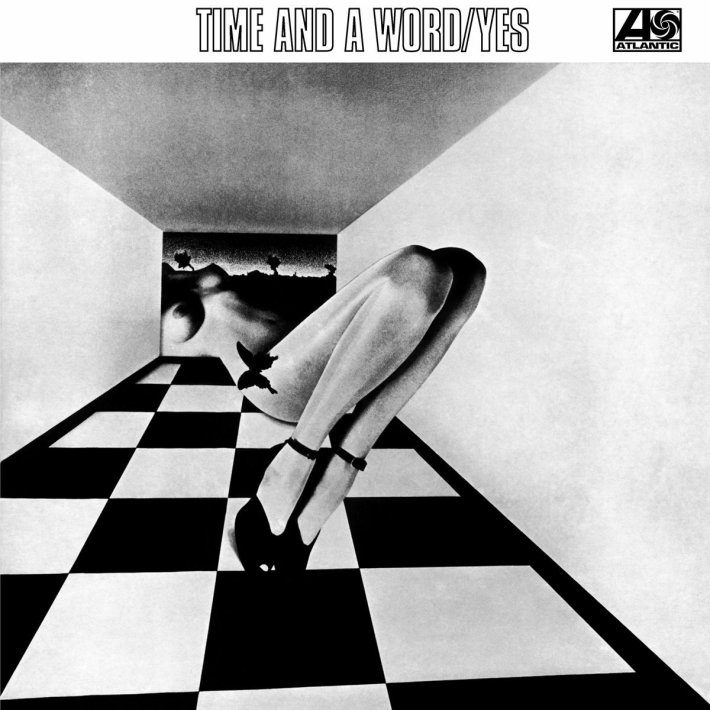
The second Yes album kicks off with another cover -- this time, it's a song by folk singer Richie Havens, "No Opportunity Necessary, No Experience Needed." It's transformed into a hard-driving, full-speed-ahead soul-rock cannonball, occasionally interrupted by orchestral flourishes. The use of an orchestra on almost every track here was a major bone of contention between Jon Anderson (who came up with the idea) and Peter Banks; ultimately, the guitarist was fired before the album's release, and in came Steve Howe. But the concept actually bears fruit at times, particularly on "Then," where the strings give the music a surprising weight. Still, Bruford is easily the MVP here; his hard-swinging drums give the music a suppleness and groove that Chris Squire's stiff virtuosic-but-stiff bass and Banks' at times proto-metallic guitar can't weigh down.
Most of the material here surges and blasts, layers of organ and doubled vocals sitting atop the churning rhythm section, occasionally punctuated by a burst of guitar -- plus the aforementioned orchestra. The sole exception is the two-minute "Clear Days," which is basically Anderson and strings, and serves as a nice palate cleanser before the heaviness of "Astral Traveller" and the title track, on which the band tones down and the orchestra soars. Time And A Word is definitely a "difficult second album," a document of a band attempting to expand its sonic purview and simultaneously figure out exactly where it fit into an at-the-time wide-open rock music landscape. As such, it shouldn't be anybody's first Yes album. But once you've heard and absorbed the classic early- to mid-'70s work, Time And A Word will be there waiting for you.
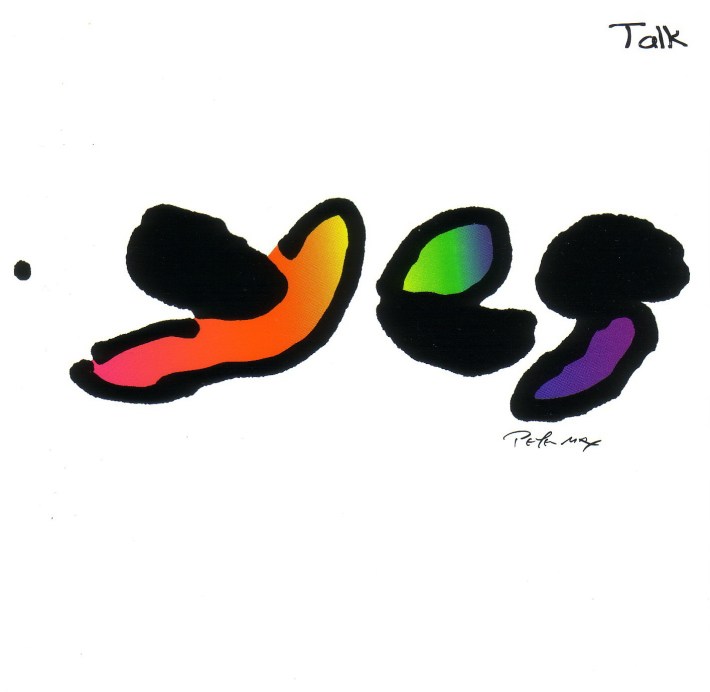
The final album by the version of Yes that made 90125, Big Generator, and contributed to Union, Talk is actually a better-than-decent melodic rock record for much of its running time. Guitarist Trevor Rabin unplugs some of his pedals and sounds more like Steve Howe than he ever has; the songs are straightforward, but don't seem as cravenly aimed at the radio as they were on Union. Indeed, this was the record on which Jon Anderson and Trevor Rabin finally started to work well together, each man's vision for the group fitting together with the other's. In some ways, the album recalls Rush's Counterparts -- a veteran band exploring modern ideas, in a somewhat stripped-down way, without losing their grip on their own identities. The final track, "The Endless Dream," is where Talk becomes essential listening for serious Yes fans, though. It runs nearly 16 minutes, and perfectly bridges the gap between their 1970s glory years and their poppier work of the '80s and '90s. It's got the epic sweep and meditative beauty of Close To The Edge, with occasional outbursts of high-tech energy and some atmospheric yet aggressive guitar from Rabin.
This was the first Yes album not to appear on a major label -- after two decades with Atco, they shifted to Arista for Union, but Talk was released on the comparatively tiny Victory Music imprint, which went bankrupt soon after, sending it out of print. So it's kind of the "forgotten" Yes album. Too bad, since it's their best 1990s release.
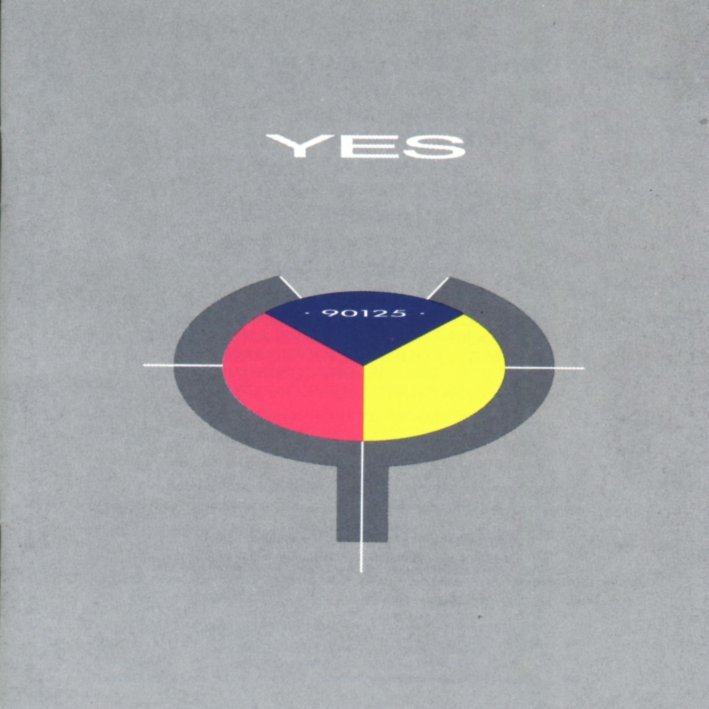
So here's what happened: After Drama and its attendant tour, Yes broke up. Steve Howe and Geoff Downes joined Asia, but Chris Squire and Alan White continued working together. They formed the short-lived trio XYZ -- which stood for eX-Yes-&-Zeppelin -- with Jimmy Page, but never recorded anything beyond a four-track demo. Then they rounded up Tony Kaye, who'd been Yes' keyboardist on the first two albums, and guitarist Trevor Rabin, and started a band called Cinema. When it came time to make an album, Trevor Horn stepped up to produce, but the label didn't think Rabin or Squire were strong enough vocalists to carry the material, so guess who was brought back into the fold? That's right -- Jon Anderson, at which point it made sense to everyone involved to just change Cinema's name to Yes.
Musically, 90125 (named for its catalog number) is incredibly, gleamingly '80s. Howe's galloping prog boogie is completely absent, as is Squire's thunderous bass; the dominant instrumental voices are Rabin's high-gloss guitar and Kaye's bell-like synths, while Anderson's vocals are soaked in reverb and echo. This is a big album -- the stomping "Hold On" sounds like it's being blared at you through a stadium PA, while "Our Song" sounds like a training montage from a Rocky sequel. The most fascinating elements of the album, though, are those that are most obviously Trevor Horn's doing. "Leave It," one of the big singles from the album, is stacked with massive drum machine thwacks and some of the very same Fairlight stabs that would pop up on Art Of Noise singles a year later. They're present to a lesser extent in "City Of Love," too, decorations at the margins of as dense a slab of corporate "hard" "rock" as has ever been recorded. 90125 is as un-Yes-like as it's possible to be; it's much more reminiscent of 1980s "supergroup" projects like the Firm and the Power Station than anything its members had done before. But approached in that spirit, it's fascinatingly bizarre, and "Owner Of A Lonely Heart" remains a kick-ass single.
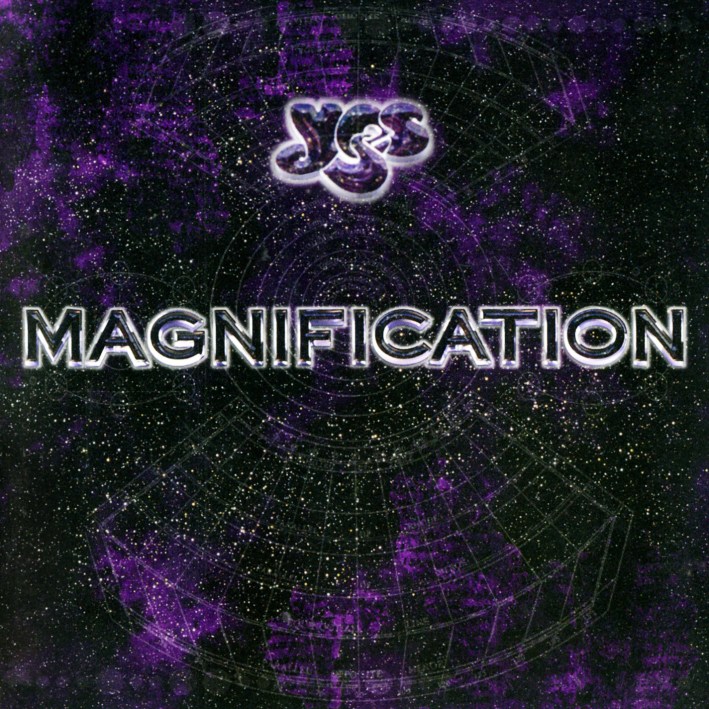
Magnification is a fascinating experiment on Yes' part. Following 1999's The Ladder, keyboardist Igor Khoroshev left the band, and when they reached out to Rick Wakeman (again), he blew them off, so for the first time in their history, Yes were left with nobody on keys. They were a guitar-bass-drums rock band, reduced to their core of Jon Anderson, Steve Howe, Chris Squire, and Alan White. Well, clearly that wasn't gonna get the job done, so for the first time since 1970's Time And A Word, they brought in a full orchestra to accompany them.
Still, the album is one of the band's most stripped-down efforts, ever. Most of the songs are midtempo rockers, with a lot harder guitar and a lot more interaction between Howe and Squire than is typical. White slams the rhythms home instead of frittering around the kit, and the orchestra has a surprising amount of muscle; the string stabs on "Spirit Of Survival" sound like something from a James Bond movie soundtrack. Squire takes the lead vocal role on "Can You Imagine," which is surprising and cool. The album's two epics, "Dreamtime" and "In The Presence Of," come back to back at the end of the album; the former sounds uncannily like what Opeth are doing in 2015, while the latter is a sweeping, epic ballad. Magnification was Jon Anderson's final studio album with Yes, and honestly, it's probably their best one since the '80s.
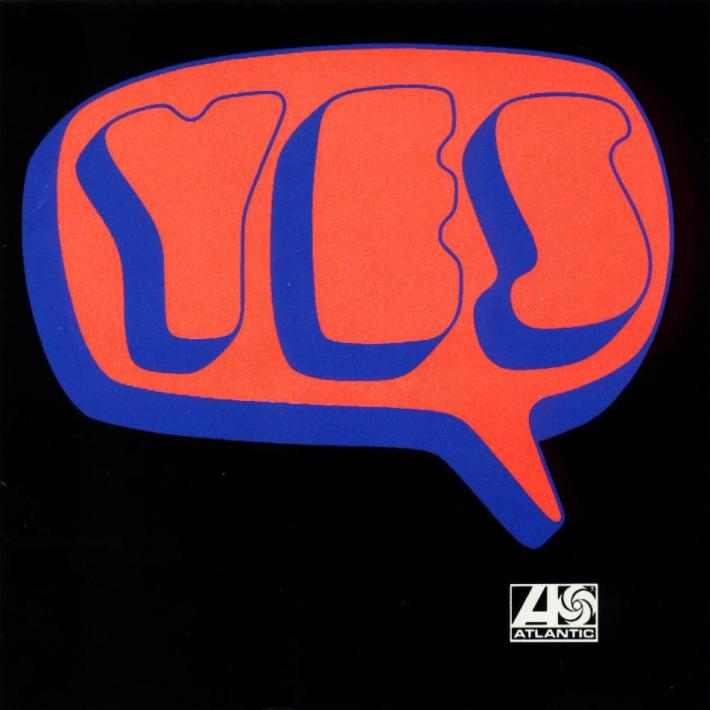
On their debut album, Yes were vocalist Jon Anderson, guitarist Peter Banks, keyboardist Tony Kaye, bassist Chris Squire, and drummer Bill Bruford. At the time of its release, they were a fast-rising band on the London scene, with a few prominent gigs under their belt, most notably opening for Cream at that group's final concerts. They were also a much more conventional rock band than they'd become in the early 1970s.
The album includes covers of the Byrds' "I See You" and the Beatles' "Every Little Thing." The former features Bruford whipping up a surprisingly swinging groove, over which Banks takes an extended, jazzy solo; meanwhile, the vocal harmonies recall the Fifth Dimension. The latter, while also interpolating the riff from "Day Tripper," begins as a hard-charging instrumental, mostly driven by Squire's thundering bass and Bruford's barrage of (very slightly phased) drums; the vocals don't begin until the two-minute mark. Once they kick in, the arrangement begins to stop and start, lurching forward at speed, then halting, then resuming.
The Yes originals are interesting in that they barely display any of the characteristics of the band's classic-era music. "Yesterday And Today" is a quiet, acoustic guitar/piano/vibes ballad, while "Beyond And Before" and "Looking Around" are fast, uptempo rockers with a few changes here and there, but the complexity their work would exhibit in the coming years is barely present. "Harold Land" has nothing to do with the hard bop saxophonist for whom it's named; it's a character study, like something Genesis or Pink Floyd might have done at the time. "Sweetness" is another soft-focus ballad, and "Survival," the album's closing track, features a jazz-rock arrangement and high, pristine vocal harmonies.
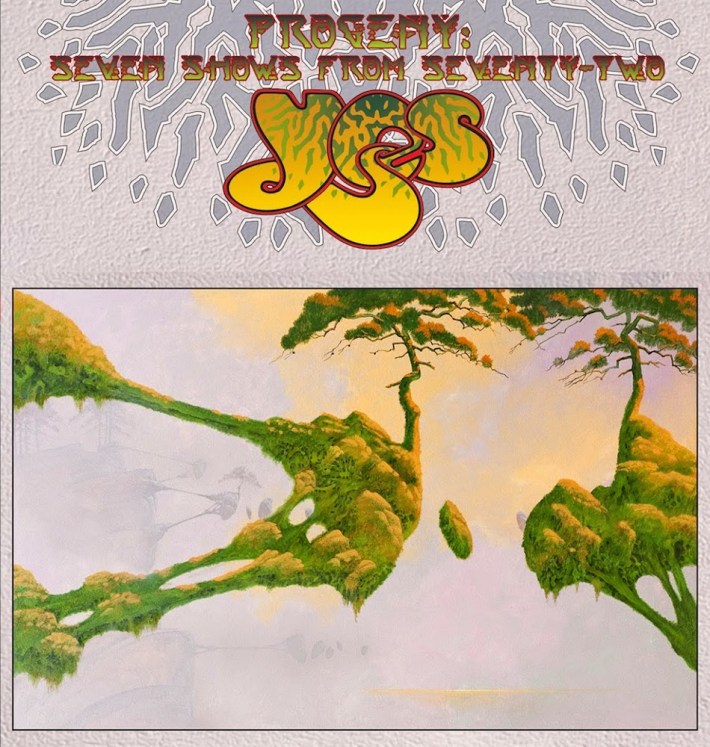
This box is obviously a diehards-only item; if you even have to ask yourself whether you should own it, you're already in so deep that the only answer is ... Yes. (The day it was announced, I joked on Twitter that since they'd already called previous live releases Yessongs and Yesshows, this one should just be called Yessss.) As its title suggests, it's a 14-CD set containing seven full shows from the 1972 tour supporting Close To The Edge (which is performed in its entirety, though not in sequence). This was the same tour on which the bulk of Yessongs was recorded, and there are a few tracks here that also appear there. But the overwhelming majority of the material is previously unreleased.
The set list is as follows: "Siberian Khatru," "I've Seen All Good People," "Heart Of The Sunrise," "Clap/Mood For A Day," "And You And I," "Close To The Edge," "Excerpts From The Six Wives Of Henry VIII," "Roundabout," "Yours Is No Disgrace." On the first concert in the box, "Clap/Mood For A Day" comes before "Heart Of The Sunrise," but other than that, there are no changes from night to night.
The differences between these shows are relatively small. The set list is exactly the same from night to night, with the exception of the concert on discs 1 and 2, where two songs are flipped. And while there's improvisation (particularly on guitarist Steve Howe's part), Yes were not King Crimson, journeying into uncharted instrumental waters night after night. This is highly disciplined, complex prog-rock; if one person misses a measure, the whole structure comes clattering down. But at the same time, they weren't chamber musicians reading from a score; they were an absolutely smoking hot rock band in 1972. Howe and Alan White repeatedly demonstrate an intensity that's almost breathtaking, particularly on the versions of "Yours Is No Disgrace" that close the shows. And it's worth remembering that, for all its power, Yessongs was tweaked after the fact (not to the degree of Kiss' Alive or Judas Priest's Unleashed In The East: Live In Japan, granted, but still), with extra layers of vocals and some instrumental polishing added to the recordings. Progeny, on the other hand, is a restoration of the original multitrack recordings, as pure and historically accurate as it gets. So basically, if you're the audience for this box, you will be blown away by it.
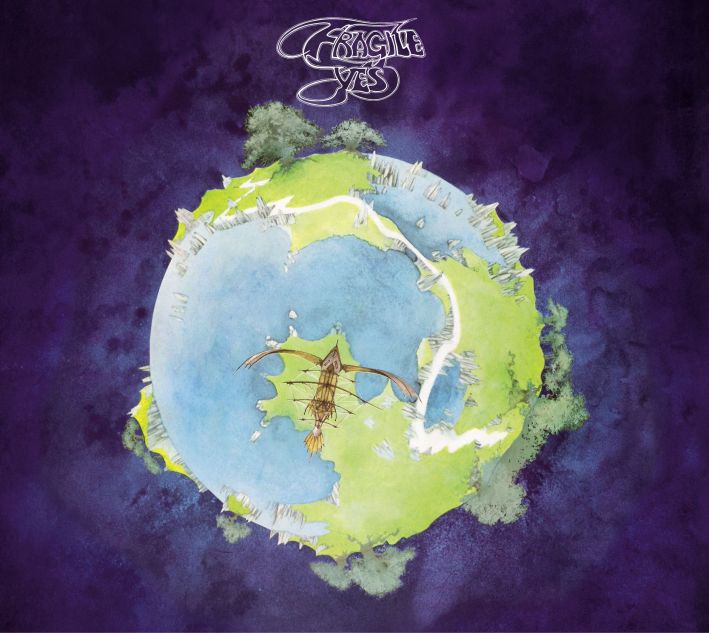
Released nine months after The Yes Album, Fragile balances four new songs -- "Roundabout," "South Side Of The Sky," "Long Distance Runaround" and the epic "Heart Of The Sunrise" -- with five little nuggets composed by individual bandmembers. "Cans And Brahms" is a quick classical adaptation from new keyboardist Rick Wakeman (replacing Tony Kaye, who'd been unwilling to expand his sonic palette beyond piano and Hammond organ); "We Have Heaven" loops two Jon Anderson phrases over each other in a round-like mantra, then ends with a goofy sound effects trick; "Five Per Cent For Nothing" is 35 seconds of not much from Bill Bruford; "The Fish (Schindleria Praematurus)" is Chris Squire's bass showcase, which actually made it into the band's live sets; and Steve Howe's "Mood For A Day" is a quite beautiful flamenco-derived piece.
The actual songs are good to great. "Heart Of The Sunrise" is one of Yes' most powerful anthems, Squire's earth-shaking bass line keeping it grounded as the vocals, guitars and keyboards soar. "Roundabout" and "Long Distance Runaround" have a mantralike catchiness at the heart of the complex arrangements and long, exploratory solos. Still, the album feels like a patchwork, and it's hard not to think that it might have been much better had the band taken a few months to write two or three more songs, instead of padding out an EP with indulgent (even when brief) and pointless solo compositions. This is the beginning of Yes' glory period, when they pretty much could do no wrong, artistically or commercially, but they hadn't fully found their feet yet.
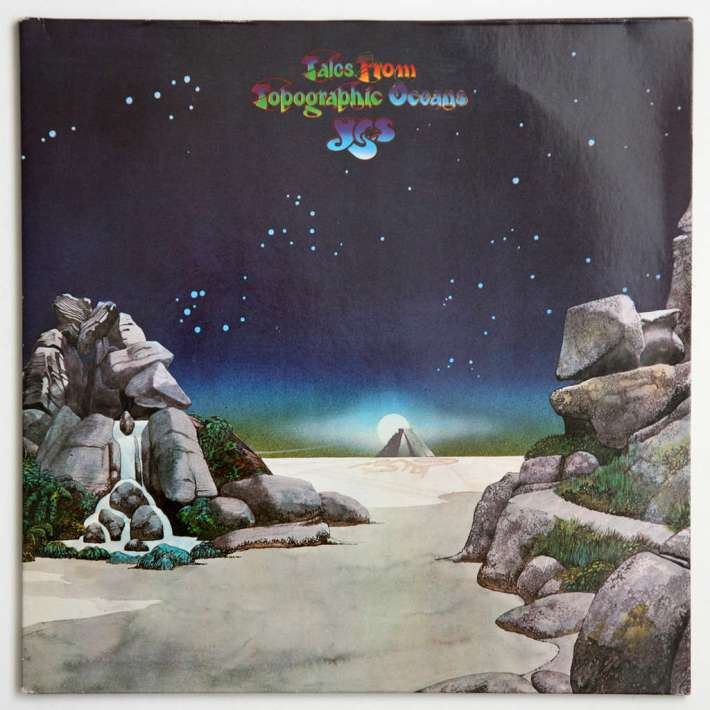
The one-two punch of Fragile and Close To The Edge had made Yes titans on the early-'70s rock scene; they moved from opening acts to headliners, and their music achieved a unique balance of adventurism and commercial palatability. The triple live album Yessongs documented this era perfectly, even managing to capture the transition as drummer Bill Bruford quit the band (to join King Crimson) and Alan White joined. But of course, many a group has let success go to its head, creatively speaking, and Yes were no exception.
Tales From Topographic Oceans, released in 1973, is a double album with only four songs on it. As such, it's one of those records that's been adopted as a symbol, in the "Everything Wrong With ... " category. And indeed, if you're a prog hater, this is one of those albums that will drive you straight up the wall. Even if you're a Yes fan, it can be tough to take.
In many ways, Tales is Jon Anderson's album; he was inspired by his reading of Paramahansa Yogananda's Autobiography Of A Yogi to create a concept album based around four classes of Hindu scripture. (Sounds exciting, right?) He took this idea to Steve Howe, who actually approved of this idea and helped him write the music in late-night sessions after shows on the 1972 tour. Once the four epic pieces had their structures roughly assembled, the other band members contributed parts and the whole thing was recorded in mid-1973, following the conclusion of the tour. Interestingly, not everyone was on board -- keyboardist Rick Wakeman was the most notable dissenter, contributing relatively little to the music (though what he does play is frequently brilliant).
Tales is a tough record to make it through. The first track, "The Revealing Science Of God (Dance Of The Dawn)," is fantastic, beginning with an almost ambient intro, before Anderson starts chanting the mesmerizing, mantra-like lyrics. The music slowly builds behind him, backing vocals appearing and shimmering guitar and keyboard tones swelling in the background until the full band announces itself at the three-minute mark, with a drum fill from White and a throbbing, earth-churning bass line from Squire. For the next 18 minutes, Squire and White keep the music grounded, as Anderson and Howe disappear over the horizon on mystical journeys. Unfortunately, the other three tracks lack the cohesion of the first -- there are great moments in "The Remembering (High The Memory)," "The Ancient (Giants Under The Sun)," and particularly "Ritual (Nous Sommes Du Soleil)," but all the really good parts could have made up the second side of a killer single album, instead of a flabby double. Maybe then, Rick Wakeman would have stuck around, instead of quitting once the Tales tour (on which, at many shows, they played the whole damn thing!) was over.
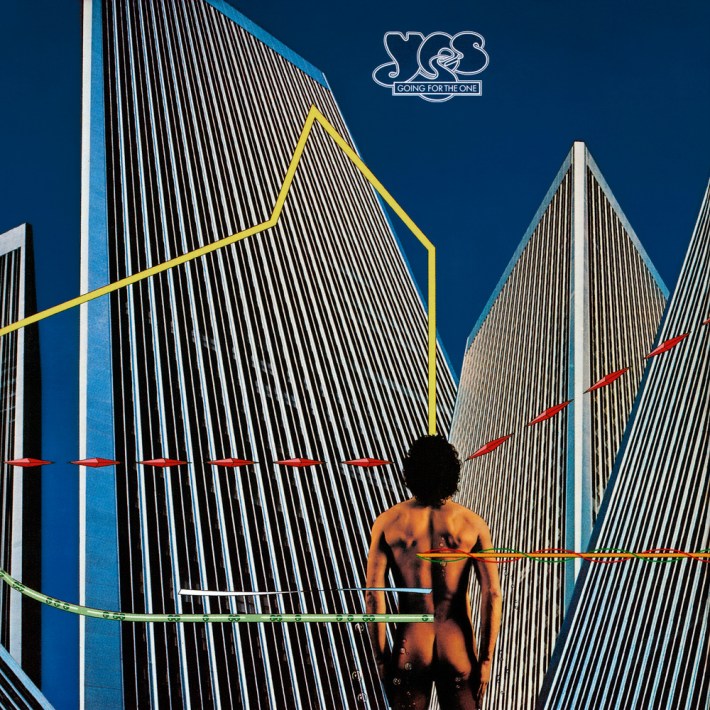
Between 1974's Relayer and this album, Yes' members went their separate ways. In fine 1970s fashion, everyone made solo albums (in order of merit: Chris Squire's Fish Out Of Water, Patrick Moraz's The Story Of I, Jon Anderson's Olias Of Sunhillow, Steve Howe's Beginnings, Alan White's Ramshackled). When they got back together and began recording, Moraz no longer seemed interested in what the band was doing, so he was fired, and Rick Wakeman -- who'd left in 1974, after the Tales From Topographic Oceans tour -- was brought back.
Musically, Going For The One is Yes' most stripped-down album since their debut. There's no concept or unifying theme -- it's just a collection of five songs, only one of them more than 10 minutes long (the 15:38 album closer, "Awaken"). The riff that launches the album, played by Howe on a pedal steel guitar, recalls Led Zeppelin's "Royal Orleans" in a weird way, but as the track goes on, it gets even weirder; Howe is actually making that Looney Tunes zinging noise in the background for much of it. It actually rocks, and starts things off very well. Unfortunately, the next song, "Turn Of The Century," is a stately, beautiful ballad that runs eight minutes and makes you feel every second of it. "Parallels," the third track, feels like the band saying, "You want old-school Yes? Here you go!" It begins with a blast of church organ from Wakeman, and is soon rocking along, with Anderson singing at the top of his range and both Wakeman and Howe soloing with extravagance and power. Interestingly, this song sounds more like the early-'80s Yes of 90125 than the early-'70s Yes of Fragile and Close To The Edge. It's a super-modern, hard-driving rock track that should be better known than it is. "Wonderous Stories" [sic] just kind of shimmers in place for four minutes; it's very beautiful, but there's not much more to it than that. "Awaken," though, is something special. A highly complex track, it builds and builds for its entire 15-minute-plus running time, with Wakeman on church organ again and Anderson (who's a serious multi-instrumentalist, by the way) sitting down behind a harp at around the six-minute mark.
From its cover art (skyscrapers and a human being, instead of fish and fantasy landscapes) to its gleaming, modern sound, Going For The One was Yes' attempt at re-engaging with the world. And it's a damn successful one, with its high points ("Parallels," "Awaken," the title track) on a par with anything they've ever done.
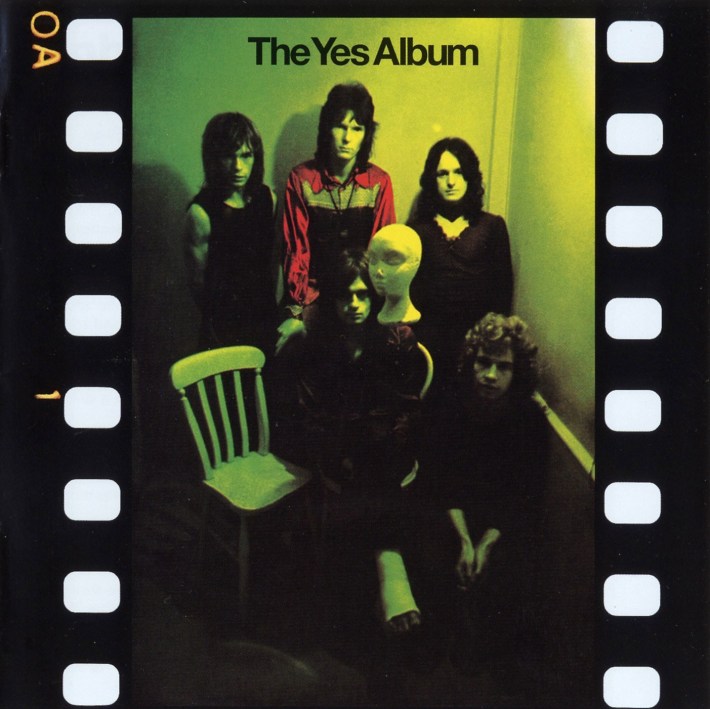
Here's where the story really begins. The third Yes album starts off with the almost fanfare-like intro to "Yours Is No Disgrace" -- Bill Bruford's martial drums, Steve Howe's chopping guitar, Chris Squire's massive bass, Tony Kaye's overdriven organ -- before launching into an galloping art-boogie riff, which then falls away, replaced by dual keyboard drones over which Jon Anderson sings the first verse. And by the time the band starts galloping forward again, you know you're in the presence of an undeniable rock music force. This isn't the top-volume, in-your-face assault of Deep Purple; there's intricacy here, and every instrument has its own carefully chosen and maintained place in the mix, even/especially Anderson's ultra-clean, occasionally doubled vocals and the tight harmonies of Squire and Howe.
The Yes Album represented a gamble for the band. Atlantic was ready to drop them after two unsuccessful releases in a row. Fortunately, they exploded out of the gate with this one. Howe was a much more fluid and multifaceted player than Peter Banks had been, and even got a track all to himself, the live acoustic "Clap." The songs as a whole were not only unique, but substantially better. Four of the album's six tracks are absolute classics: "Yours Is No Disgrace," "Starship Trooper," "I've Seen All Good People" and "Perpetual Change." Rhythmically speaking, the jazzy swing of the early years is gone, replaced by a hard-rock stomp, leavened with the occasional outburst of country boogie (the guitar solo on "I've Seen All Good People" is some mind-warping hillbilly-ass pickin'). This is the first of a string of five (some would say six) classic studio albums in a row, the beginning of Yes' classic era.
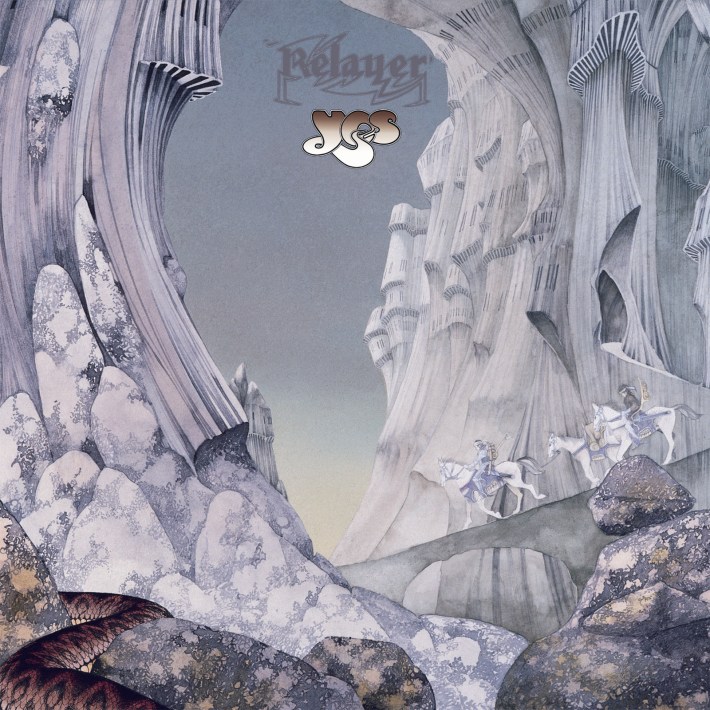
Relayer is Yes' metal album. OK, that's an exaggeration. But it is their hardest, most aggressive, wildest, noisiest release. Keyboardist Rick Wakeman left the group after the tour in support of 1973's bloat-tastic double disc, Tales From Topographic Oceans, and they replaced him with Patrick Moraz, a relative unknown from Switzerland, of all places. Ducking into the studio, they emerged with a dark mirror image of 1972's Close To The Edge -- one song on one side, two on the other, all of them full of time shifts, multi-part vocal harmonies, intricate guitar-keyboard interplay, and churning rhythm work from Chris Squire and Alan White (as opposed to Bill Bruford, who played on Edge).
The album's first half, the nearly 22-minute "Gates Of Delirium," is easily and by far the most insane track recorded in Yes' classic era. Built around an angular, twang-metal guitar riff from Steve Howe with Moraz zapping and zinging around behind him, it travels through a series of related but discernible movements. Atop it all, Anderson's vocal melodies are less mantralike than they were on Tales From Topographic Oceans, and more like a traditional song -- not necessarily the same one the band's playing, though. He's off in his own world, and they're in theirs, and occasionally the mathematical formulas being diagrammed by the rhythm section bring everybody into line. The long instrumental section in the middle of the piece is breathtaking and bizarre, verging on Mars Volta levels of intensity at times, even before taking into account the explosive junk-percussion break. That's right, Yes goes full-on Einstürzende Neubauten on this one, clanging and clattering and bashing away as Howe and Moraz solo in manic oblivion. Seriously, "Gates Of Delirium" lives up to its title.
The two tracks on the second side of Relayer kind of pull back from the cliff's edge that "Gates Of Delirium" ran the band up to. "Sound Chaser" features Howe getting all crazy-fingers again, but in a slicker, Euro-rock way that prefigures their next album, Going For The One; he's almost boogieing, and Anderson's vocals almost recall "Roundabout" in their punchy directness. Album closer "To Be Over," meanwhile, is a gentle ballad with an atmosphere like a rainstorm in a greenhouse; Howe's slide guitar playing sounds like Hawaiian legend Sol Hoopii gone sci-fi. Relayer is as weird as Yes ever got, and is unique in their catalog for exactly that reason: You can't pull a trick as dense, baffling, and awesome as this more than once.
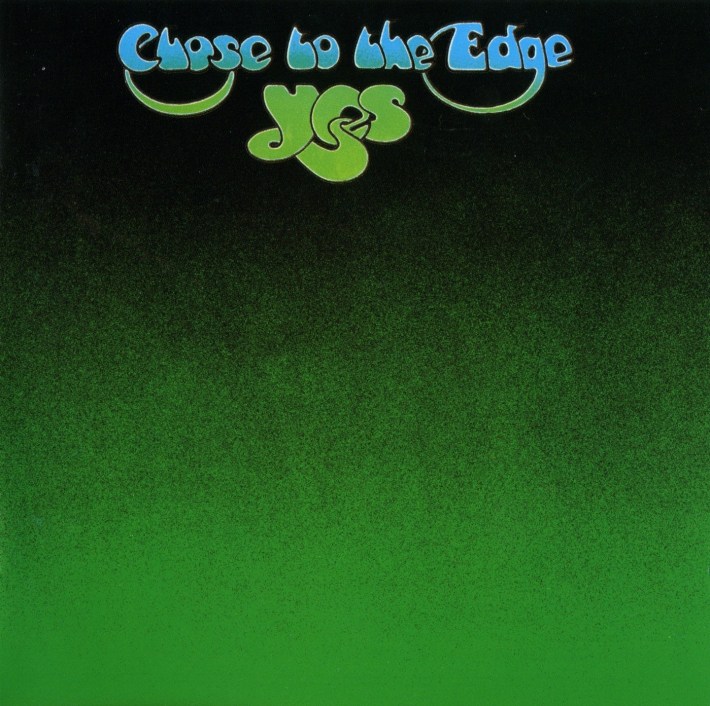
Regarded by many as Yes' masterpiece, Close To The Edge is virtually the opposite of its immediate predecessor, 1971's Fragile. With only three songs -- the nearly 19-minute, side-long title track, the 10-minute "And You and I" and the relatively concise (at just under nine minutes) "Siberian Khatru" -- there was no room for filler, and there isn't any. Everything here is necessary to the greater whole.
"Close To The Edge," the song, is divided into four sections and showcases pretty much everything Yes could do at the time. It begins with the sounds of running water and chirping birds, but soon some seriously nasty guitar erupts, with the band clattering and zapping around behind; with its cacophonous lack of interplay, this passage prefigures the work of noisy, hyper-aggressive modern prog acts like Orthrelm and the Flying Luttenbachers. Though Jon Anderson chants a few nonsense syllables early on, interrupting Howe's guitar attack, actual lyrics don't appear until the four-minute mark. The piece continues along, with a second vocal line (from Howe and Chris Squire) emerging to provide counterpoint, and toward the 12-minute mark, Rick Wakeman takes a solo on a church organ, which blasts through everything like a tidal wave, basically flattening the whole structure and forcing the band to rebuild entirely for the song's final five minutes. The track ends as it began, with nature sounds.
"And You And I" is much mellower and less of a suite than "Close To The Edge"; it's mostly built around layers of acoustic guitar, with occasional zooming and squiggling noises from Rick Wakeman's synths. At one point, Howe and Squire are singing alternate lyrics to Anderson, with their vocals filtered through a Leslie speaker. While at times the song gets close to Emerson, Lake & Palmer territory with its balance of acoustic singer-songwriterism and weirdo electronic intrusions, overall it's Yes at their most pastoral and beautiful. "Siberian Khatru," on the other hand, is a fast, constantly shifting rock track, with plenty of stinging guitar and burbling organ, and Bill Bruford driving the band hard. Wakeman's keyboards take on a variety of roles, from sitar to harpsichord, moving the music through multiple moods even as the momentum never stops.
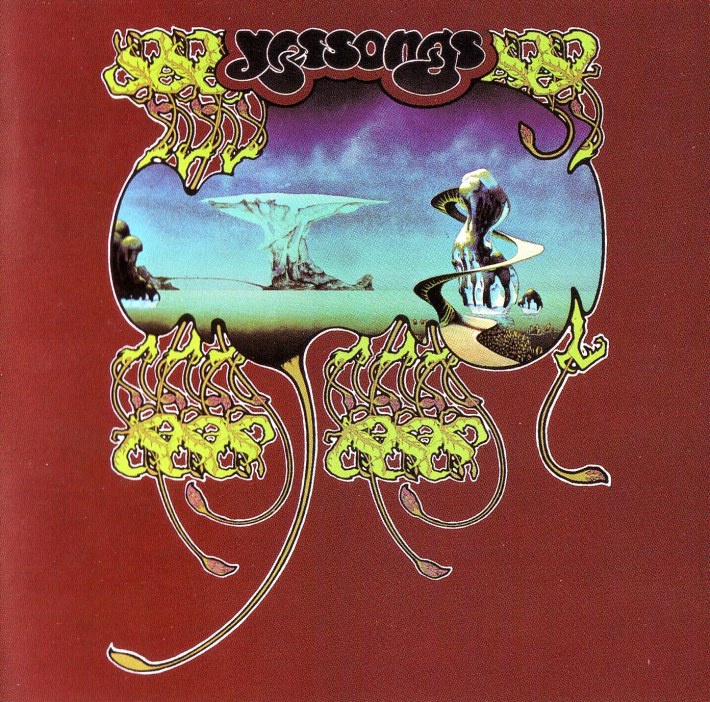
The 1970s were the golden era of the live album, and prog-rock bands really took to the idea, in multiple cases stretching out to not just double, but triple live releases. Emerson, Lake & Palmer, Santana, and Yes all went the 3LP route, with glorious results. Lotus presents Santana at their jazz-fusion/prog/Latin-rock peak, with only two songs on the whole thing even including vocals(!); Welcome Back My Friends To The Show That Never Ends lives up to its title, giving ELP all the room they need to sprawl out for half an hour at a time; but Yessongs is not only one of the crucial Yes documents, but one of the greatest live albums of all time.
Though there are two tracks featuring Bill Bruford, who left to join King Crimson, the majority of the material was recorded on the second round of 1972 tour dates, with Alan White on drums. The performances are uniformly ferocious and high-octane; some tracks are nearly twice as long as their studio versions, most notably "Long Distance Runaround/The Fish (Schindleria Praematurus)." On Fragile, the two tracks -- which run together, as they do here -- add up to just over six minutes of music; on Yessongs, they stretch to almost 14, including some intense Chris Squire/Bill Bruford jamming. Similarly, "Yours Is No Disgrace" is extended from 10 minutes to nearly 15, and features some of the most aggressive playing of the entire set. There's also an incredible amount of raw beauty here, though. "Heart Of The Sunrise" vacillates between hard-driving rock and pastoral shimmer, while "And You And I" and "Close To The Edge" are breathtakingly gorgeous, while retaining a vitality that never lets you forget that Yes were one of the most powerhouse rock bands of the decade. And the pacing of the whole thing is pretty much perfect; even the solo segments (Rick Wakeman performs an excerpt from his solo album The Six Wives Of Henry VIII) don't drag.
Basically, Yessongs features Yes' best lineup(s), performing much of their best material, with more power and energy than at any other time. It's such a fantastic representation of the band, you could actually make it your first purchase by them and work your way backwards to the studio albums. (That's what I did.)
